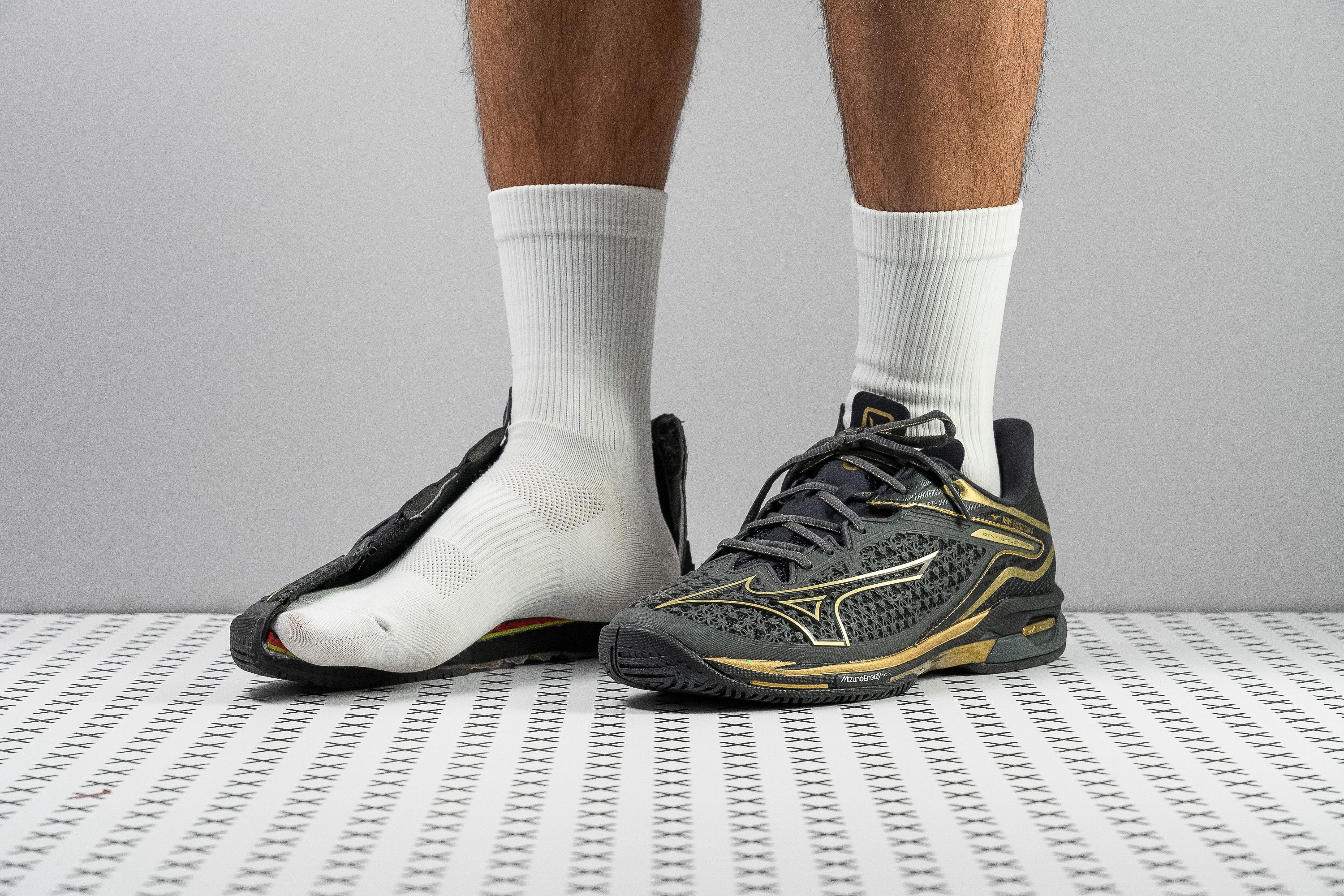Our verdict
- Top pick in best plantar fasciitis tennis shoes
- Top pick in best lightweight tennis shoes
Pros
- Lighter than average speedy
- Bouncy and responsive cushioning
- Very stable for a lightweight shoe
- Unusually flexible
- Secure midfoot lockdown
- Perfect grip on hard court
- Excellent overall durability
- 6-month outsole durability guarantee
Cons
- Not very breathable
- Toe drag guard is not very sturdy
- Laces bite when cinched tightly (or when a runner's knot)
Audience verdict
- Top 26% in all court tennis shoes
- Top 30% in lightweight tennis shoes
- Top 24% most popular tennis shoes
Comparison
The most similar tennis shoes compared
+ + Add a shoe | |||||
|---|---|---|---|---|---|
| Audience score | 89 Great! | 89 Great! | 78 Good! | 91 Superb! | |
| Price | £140 | £135 | £65 | £135 | |
| Shoe type | All CourtHard Court | All CourtHard Court | All CourtHard Court | All CourtHard Court | |
| Shock absorption | Moderate | High | Low | Low | |
| Energy return | High | Low | Moderate | Low | |
| Traction | Moderate | Moderate | High | Moderate | |
| Construction | Speed | Speed | Stability | Stability | |
| Breathability | Moderate | Breathable | Breathable | Moderate | |
| Weight lab | 11.7 oz / 332g | 10.9 oz / 309g | 11.3 oz / 319g | 13.9 oz / 393g | |
| Lightweight | ✓ | ✓ | ✓ | ✗ | |
| Drop lab | 10.7 mm | 9.8 mm | 10.2 mm | 10.9 mm | |
| Width / fit | Medium | Medium | Medium | Medium | |
| Toebox width | Medium | Narrow | Medium | Narrow | |
| Size | Slightly small | Slightly small | Slightly small | True to size | |
| Midsole softness | Firm | Firm | Balanced | Firm | |
| Stiffness | Flexible | Moderate | Flexible | Moderate | |
| Torsional rigidity | Moderate | Moderate | Moderate | Stiff | |
| Heel counter stiffness | Stiff | Stiff | Flexible | Stiff | |
| Midsole width - forefoot | Very narrow | Narrow | Narrow | Average | |
| Midsole width - heel | Very narrow | Average | Narrow | Average | |
| Outsole durability | Bad | Good | Decent | Good | |
| Heel padding durability | Good | Good | Bad | Bad | |
| Heel stack lab | 30.2 mm | 28.3 mm | 28.6 mm | 32.5 mm | |
| Forefoot | 19.5 mm | 18.5 mm | 18.4 mm | 21.6 mm | |
| Insole thickness | Average | Average | Average | Average | |
| Removable insole | ✓ | ✓ | ✓ | ✓ | |
| Heel tab | Extended heel collar | Extended heel collar | None | None | |
| Toebox durability | Good | Good | Bad | Good | |
| Outsole hardness | Average | Average | Average | Average | |
| Outsole thickness | Very thin | Thin | Average | Average | |
| Ranking | #8 Top 20% | #7 Top 17% | #36 Bottom 14% | #3 Top 8% | |
| Popularity | #12 Top 29% | #4 Top 10% | #17 Top 41% | #1 Top 3% |
Who should buy
We gladly recommend the Mizuno Wave Exceed Tour 6 to players looking for the following:
- a lightweight and speedy tennis shoe
- a flexible profile that feels close to the court
- a speed-oriented tennis shoe that doesn't skimp on stability
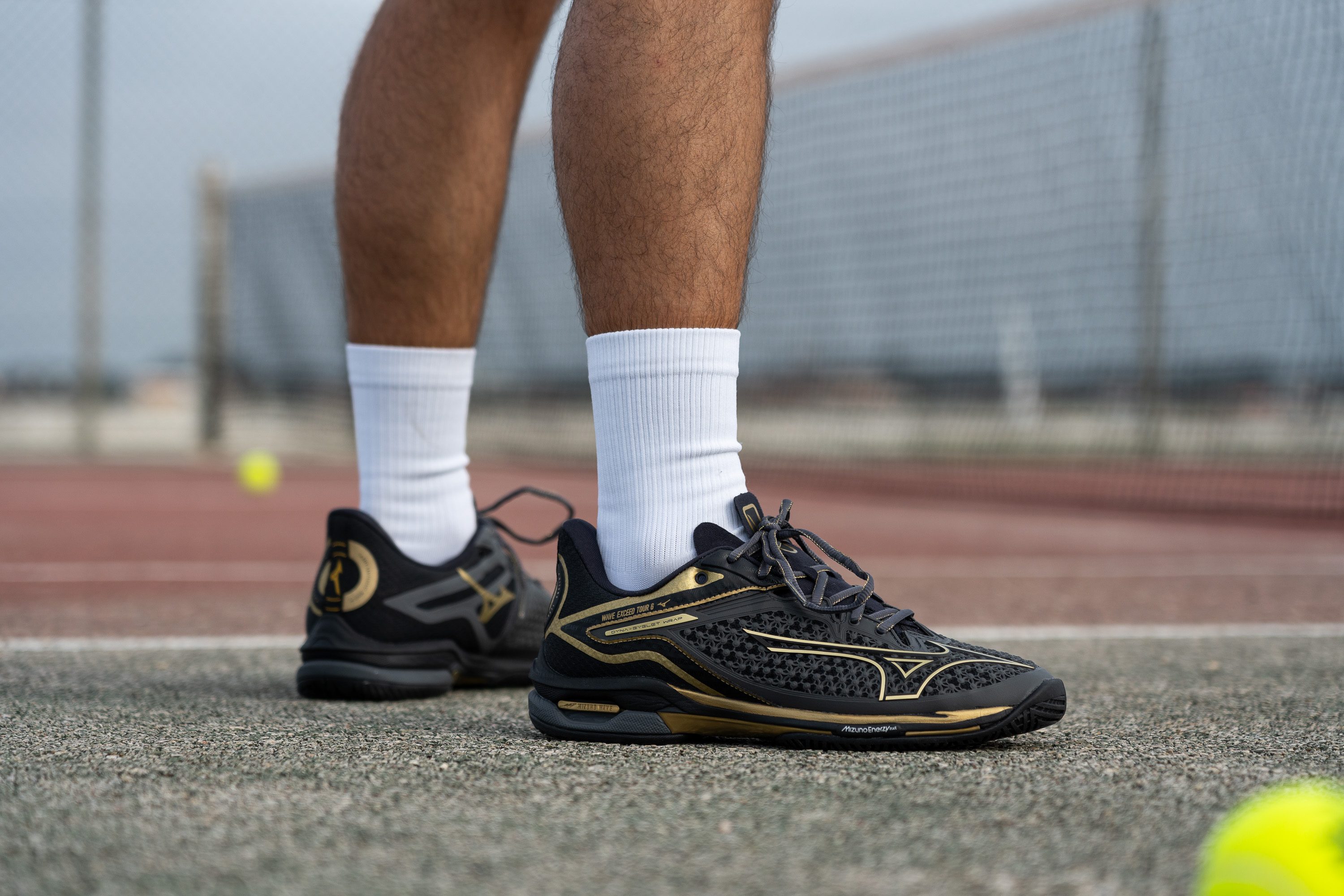
Who should NOT buy
We only found a couple of mishaps in the Wave Exceed Tour 6 which may not even be considered deal-breakers by most players.
But if you have issues with the following downsides, we recommend the ASICS Solution Speed FF 3 or the NB 996 v5 instead:
- you are a really aggressive slider and want extra reinforcement on the medial side
- you tie a runner's knot frequently or have to tie laces really hard (the tongue is too short and thin to buffer the lace pressure)
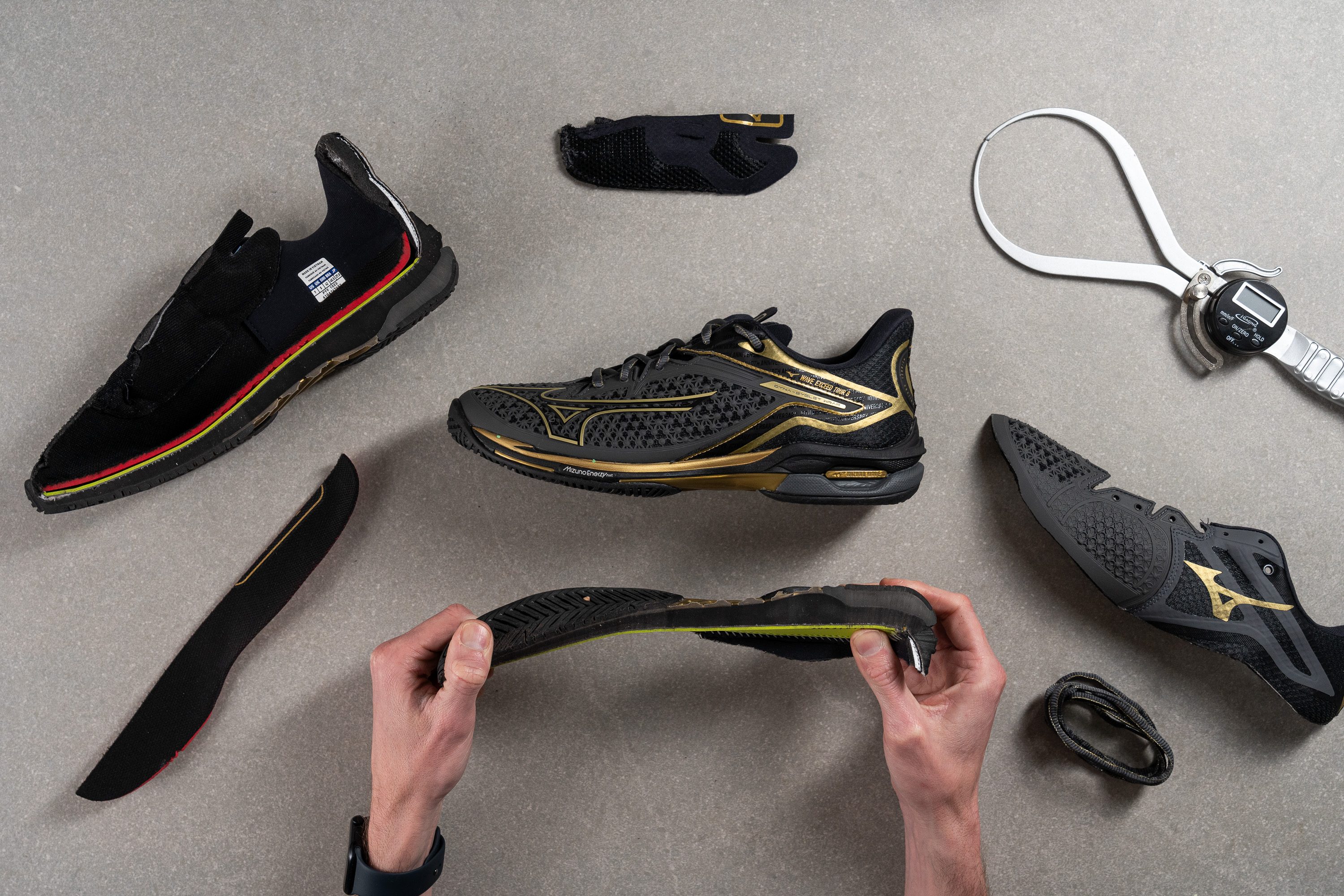
Cushioning
Shock absorption
The cushioning of this Mizuno tennis shoe feels balanced and well-rounded, catering to various types of players.
Its shock absorption came in at a standard 101 SA in the heel and 67 SA in the forefoot - both on par with the category average.
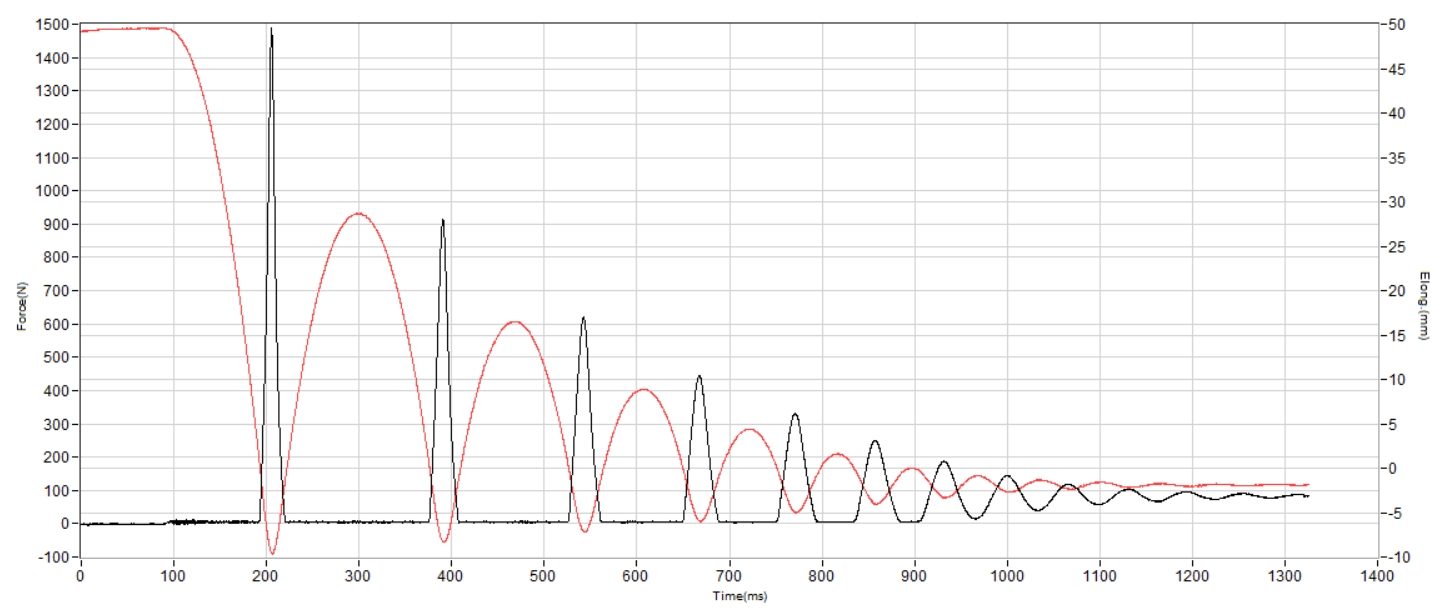
| Wave Exceed Tour 6 | 101 SA |
| Average | 99 SA |
Energy return
Mizuno claims that its updated Enerzy NXT foam is its lightest and most responsive foam yet, and we can subscribe to that!
Not only did the Exceed Tour 6 feel amazingly bouncy and propulsive, but it also showed respectively high energy return measurements of 57% in the heel and 62.5% in the forefoot. It is one of the springiest tennis shoes we've tested!
| Wave Exceed Tour 6 | 57.0% |
| Average | 48.3% |
Heel stack
The Wave Exceed Tour 6 features two foams stacked one upon another in the heel section of the midsole.
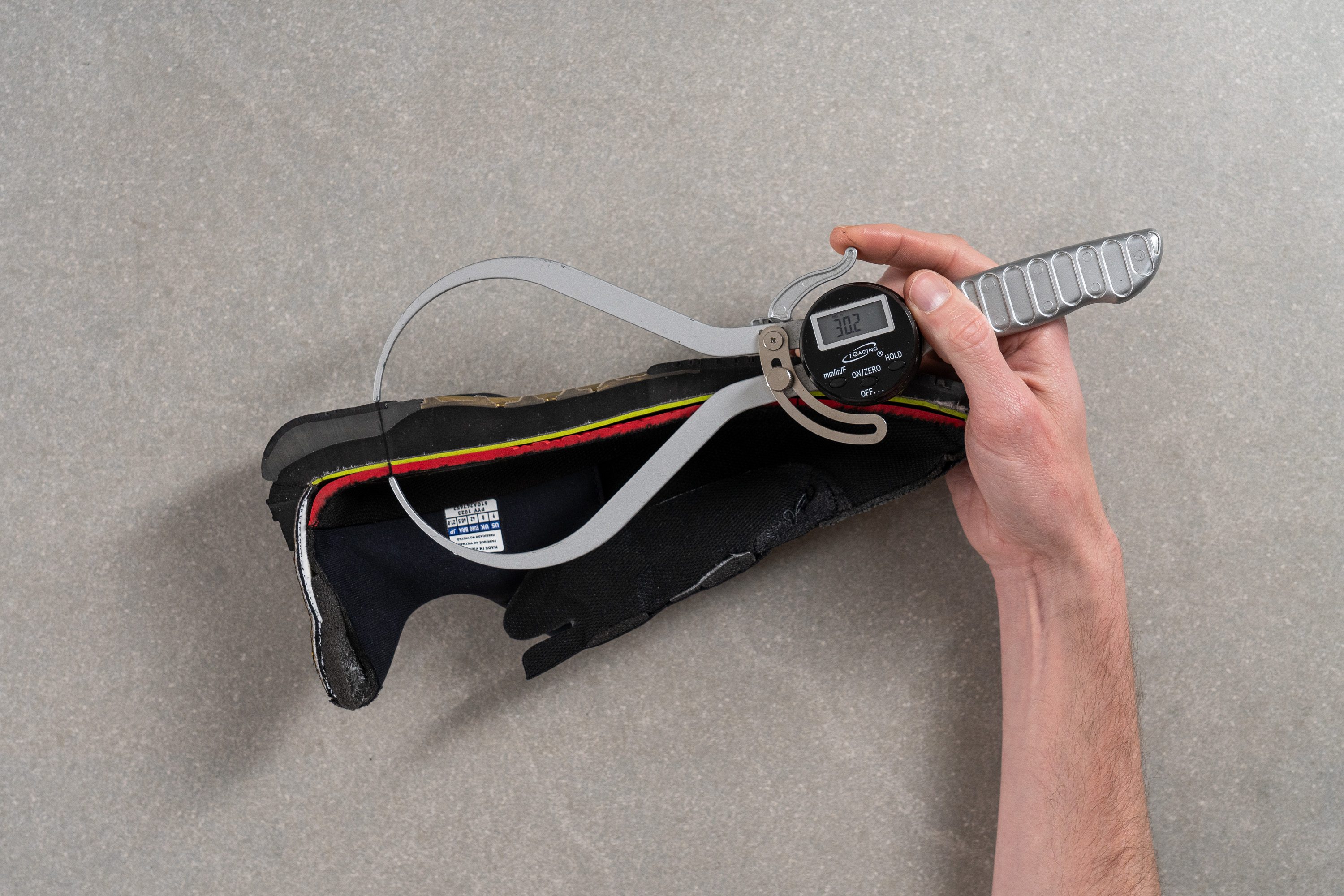
Combined with the outsole and the insole, they make up 30.2 mm of heel stack height. It's not much thicker than the average but enough to offer plenty of impact protection.
It surely feels more grounded than its highly cushioned counterpart, the Enforce Tour.
| Wave Exceed Tour 6 | 30.2 mm |
| Average | 29.3 mm |
Forefoot stack
In the forefoot, our calliper showed a fairly average stack of 19.5 mm.
We experienced a fine balance of court feel and cushioning when standing on our toes and doing split steps.
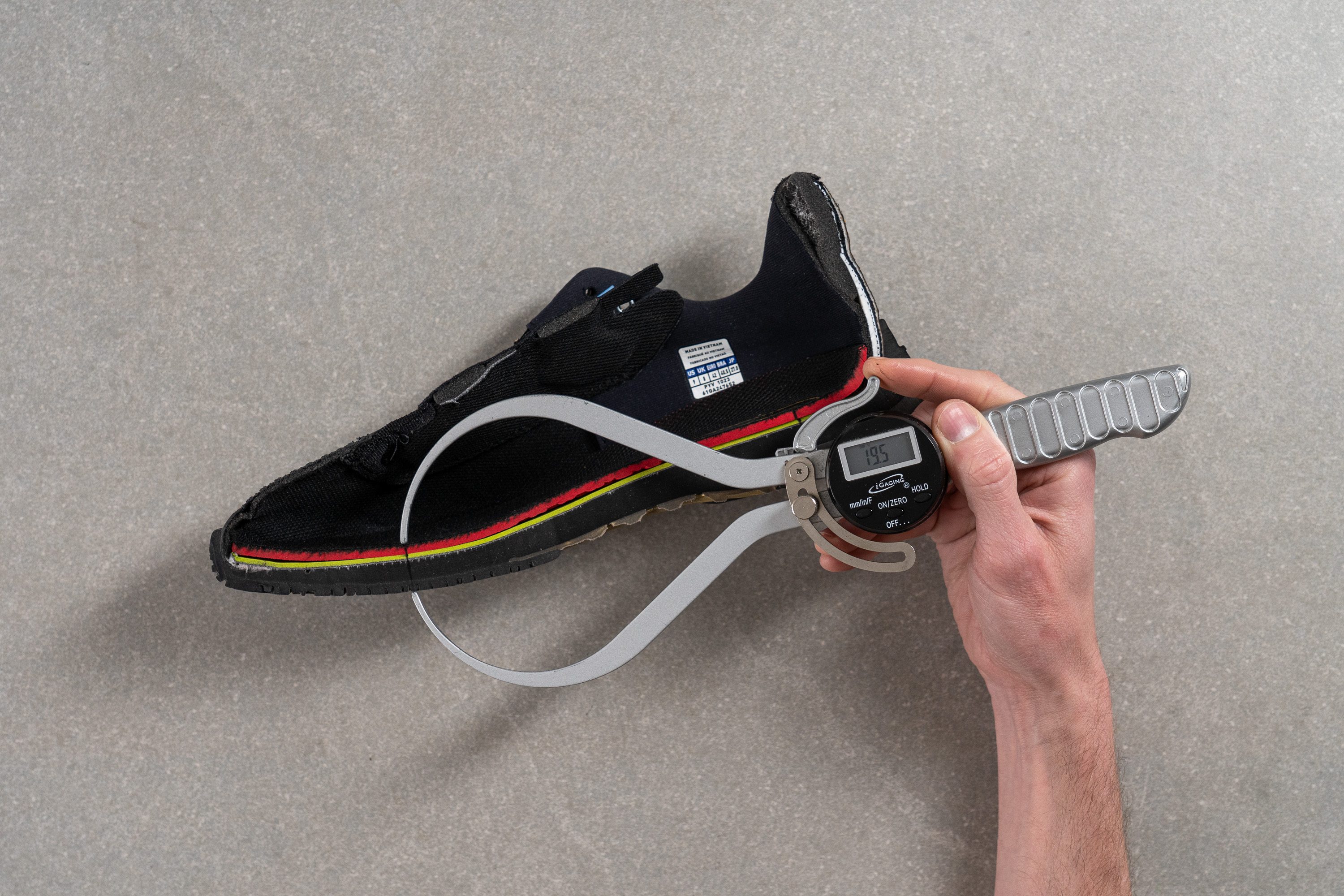
| Wave Exceed Tour 6 | 19.5 mm |
| Average | 19.4 mm |
Drop
The difference in stack heights (aka drop) in this Mizuno shoe comes in at 10.7 mm.
It means that the heel is moderately elevated above the toes but not too much to cause toe jamming.
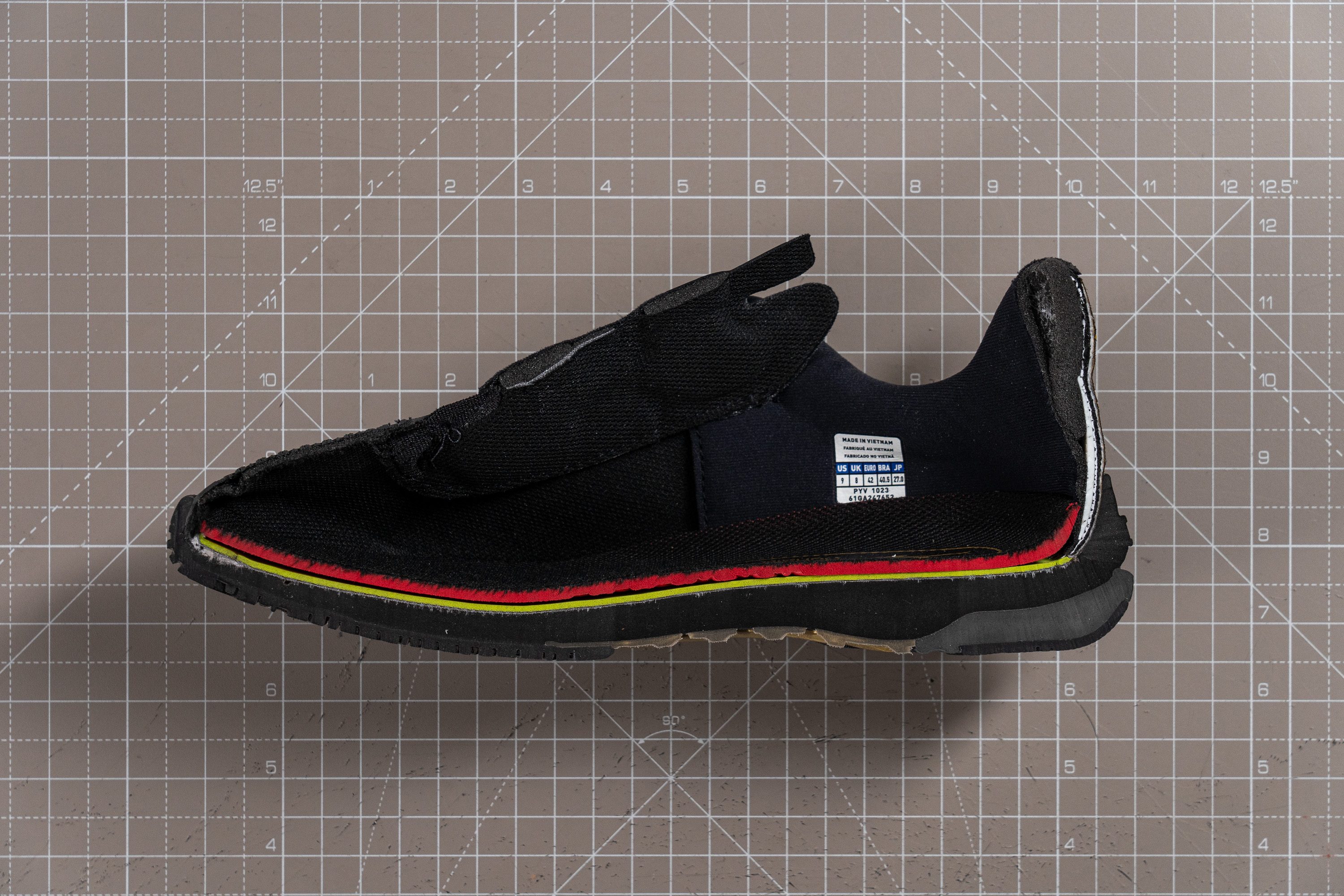
| Wave Exceed Tour 6 | 10.7 mm |
| Average | 9.9 mm |
Midsole softness
The primary cushioning foam of the Exceed Tour 6 is the updated Enerzy NXT.
However, don't expect it to be a soft foam. Pressing our durometer against it returned 30.9 HA. This is slightly firmer than average.
But in the case of the Exceed Tour, firm by no means implies dead! As we said, the shoe's responsiveness makes it quite fun to play in.
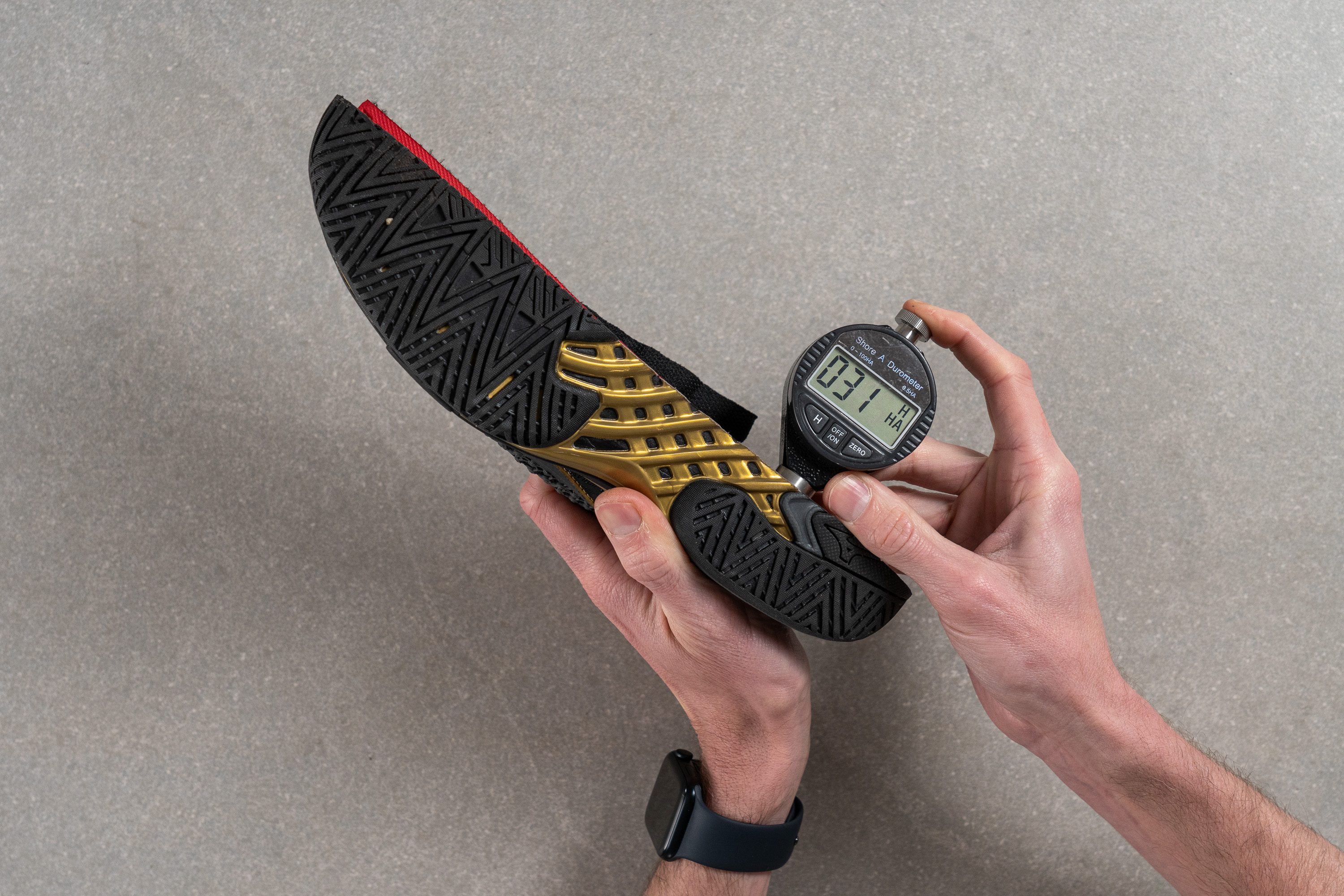
| Wave Exceed Tour 6 | 30.9 HA |
| Average | 28.2 HA |
Secondary foam softness
To enhance impact protection in the heel, Mizuno added a different type of foam called the PoWnCe. It is supposed to be a more resilient cushioning unit than the Enerzy.
Based on our durometer measurements, the PoWnCe is not much different when it comes to firmness. The durometer reading is exactly the same (31.0 HA).
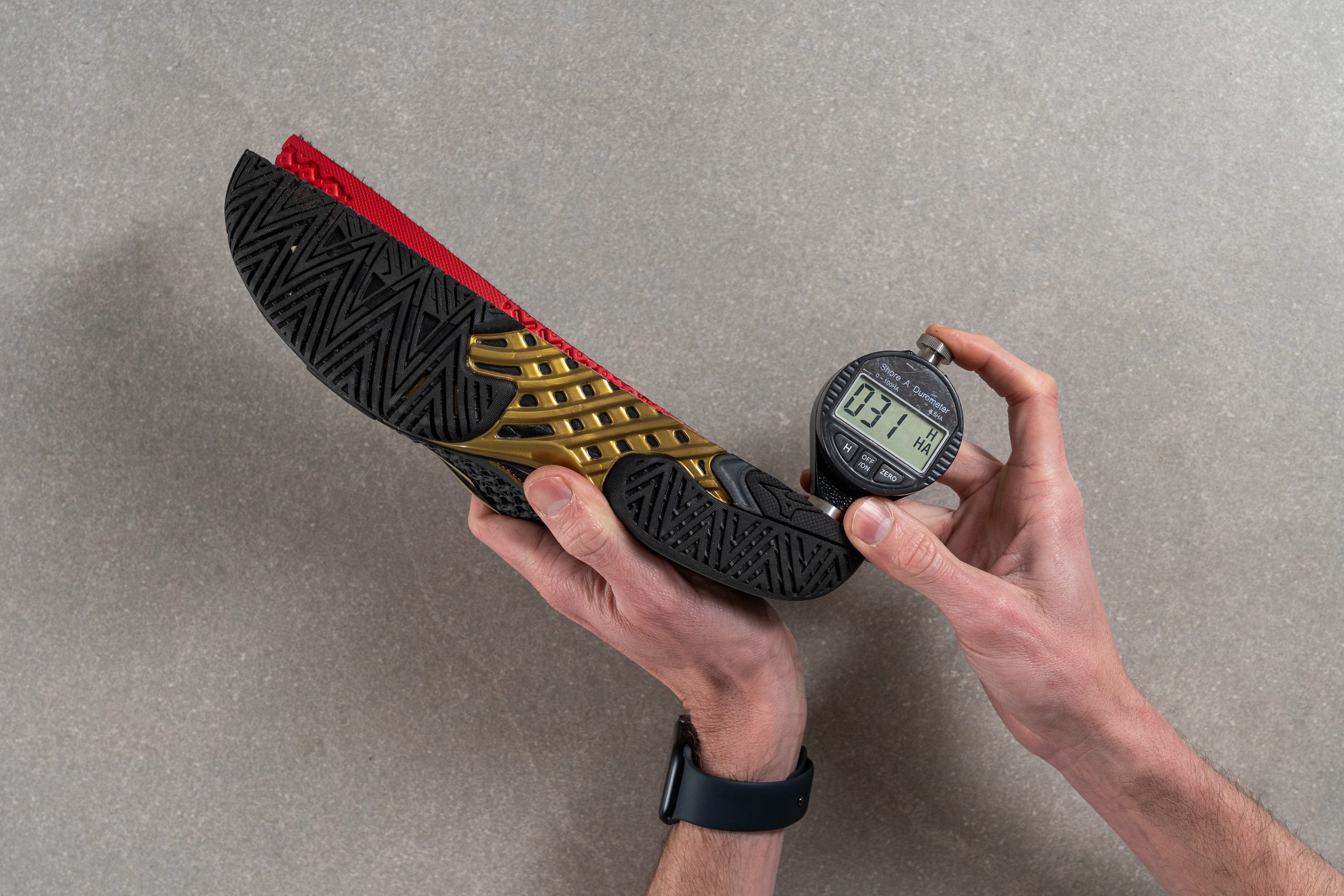
| Wave Exceed Tour 6 | 31.0 HA |
| Average | 26.3 HA |
Size and fit
Size
Mizuno Wave Exceed Tour 6 fits slightly small (19 votes).
Internal length
| Wave Exceed Tour 6 | 270.1 mm |
| Average | 270.9 mm |
Width / Fit
The Mizuno Wave Exceed Tour 6 offered a pretty accommodating fit during the playtest and our lab tests confirmed it. Having created a gel mould of the shoe's interiors, we were able to precisely measure the shoe's internal dimensions.
In the widest part of the shoe, our calliper showed a standard reading of 92.8 mm. It is on par with the other medium-width tennis shoes we tested.
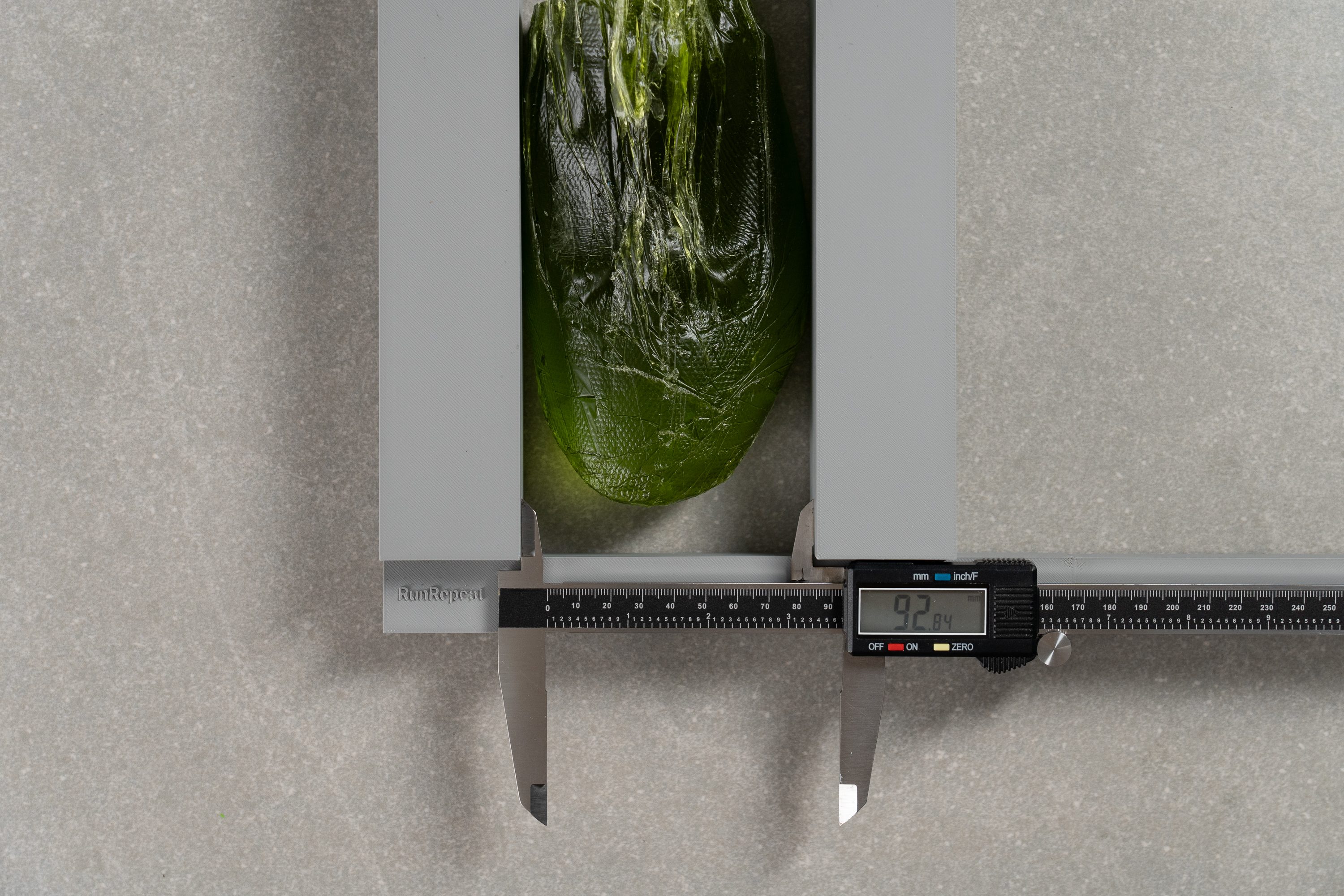
| Wave Exceed Tour 6 | 92.8 mm |
| Average | 92.9 mm |
Toebox width
We also found that the shoe's taper angle is not very aggressive and it is even slightly wider than average near the big toe. Our calliper showed 71.0 mm of width in the toebox.
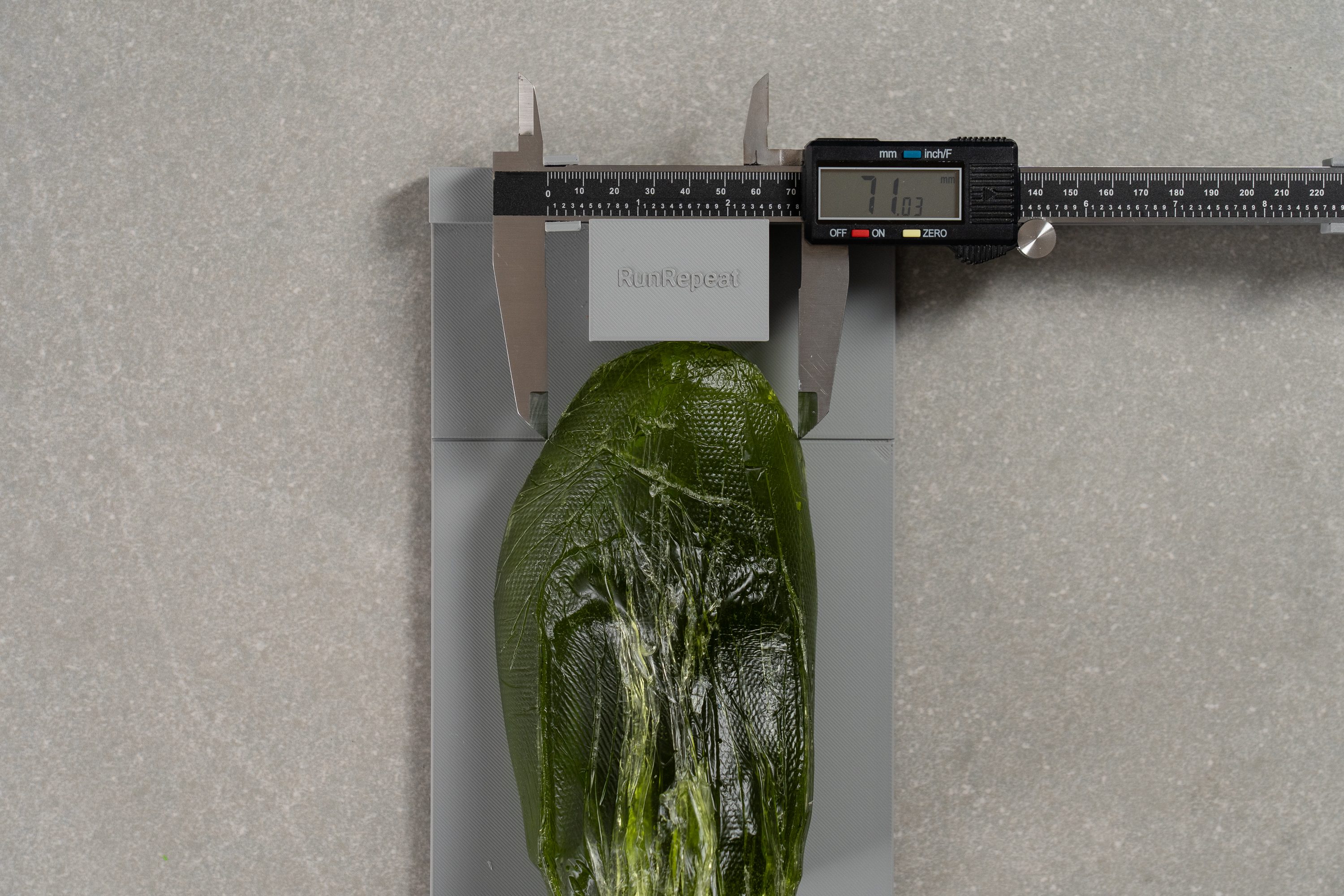
| Wave Exceed Tour 6 | 71.0 mm |
| Average | 69.3 mm |
Toebox height
The Exceed Tour 6 also provides ample vertical space with a slightly above-average toebox height of 25.4 mm.
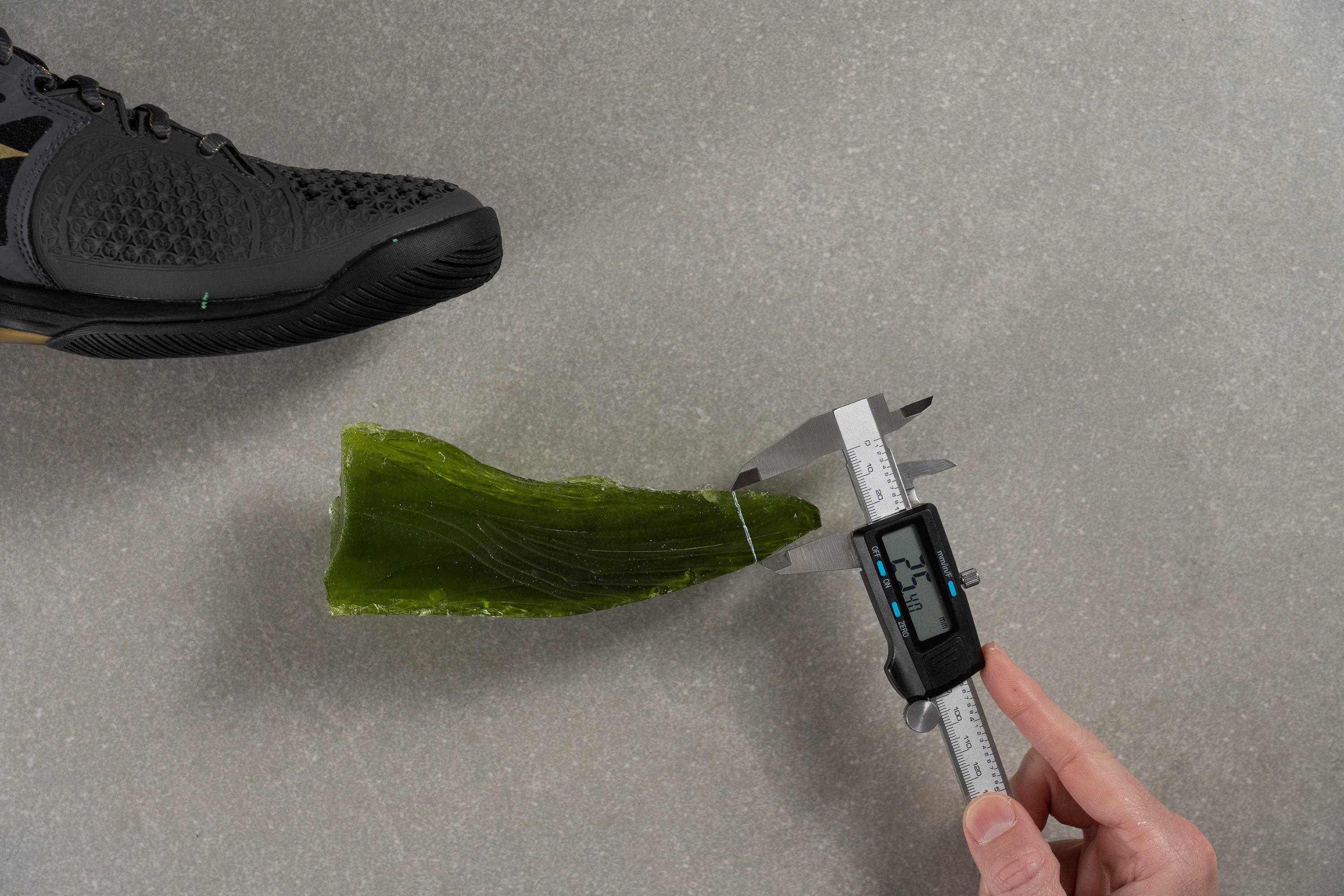
| Wave Exceed Tour 6 | 25.4 mm |
| Average | 25.0 mm |
Lockdown
The Dyna-Eyelet Wrap is Mizuno's approach to a supportive and secure fit that keeps the foot in place during the most dynamic movements.
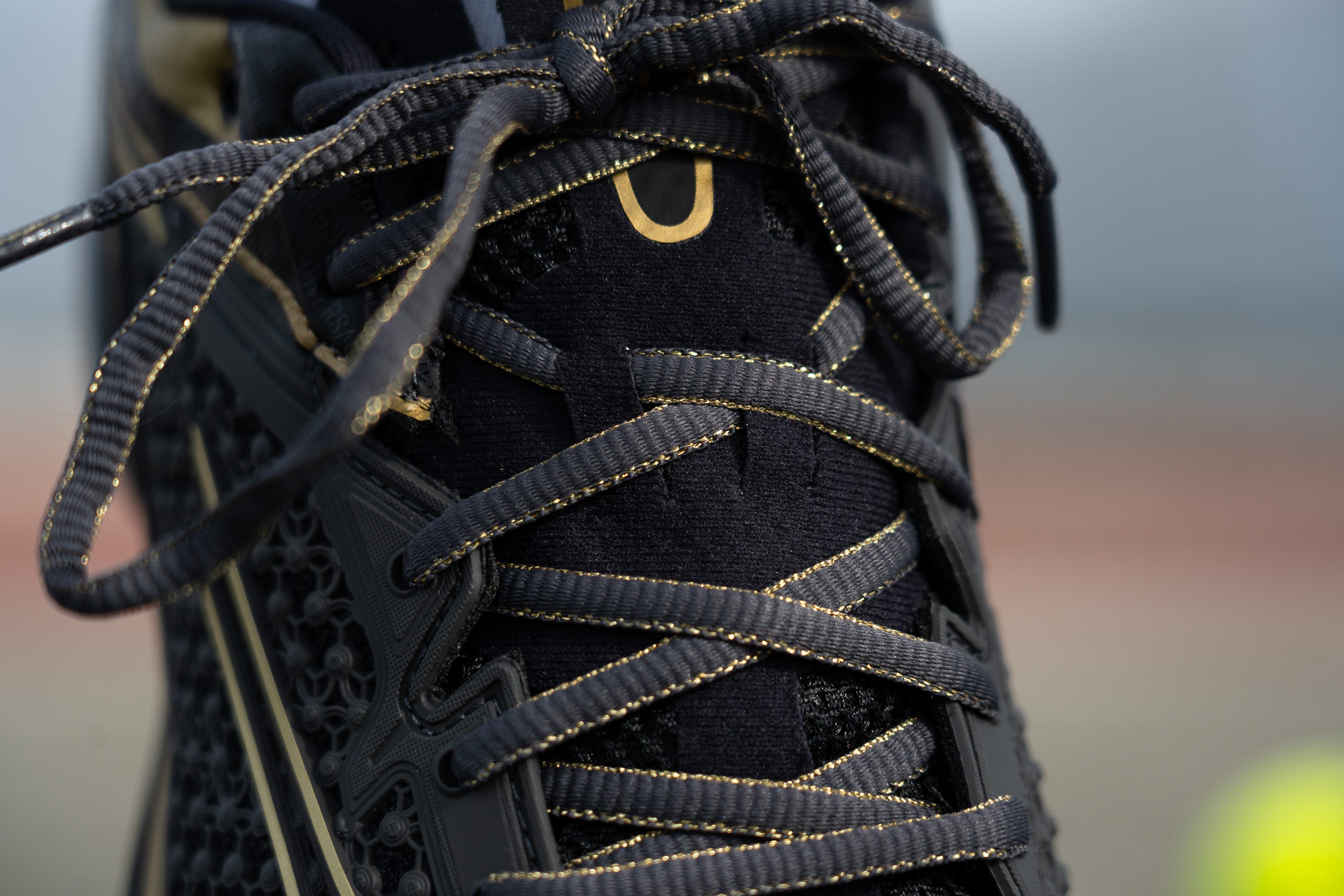
Once we cinched down the laces, we could feel the PU panels tighten up on both sides to wrap our feet.
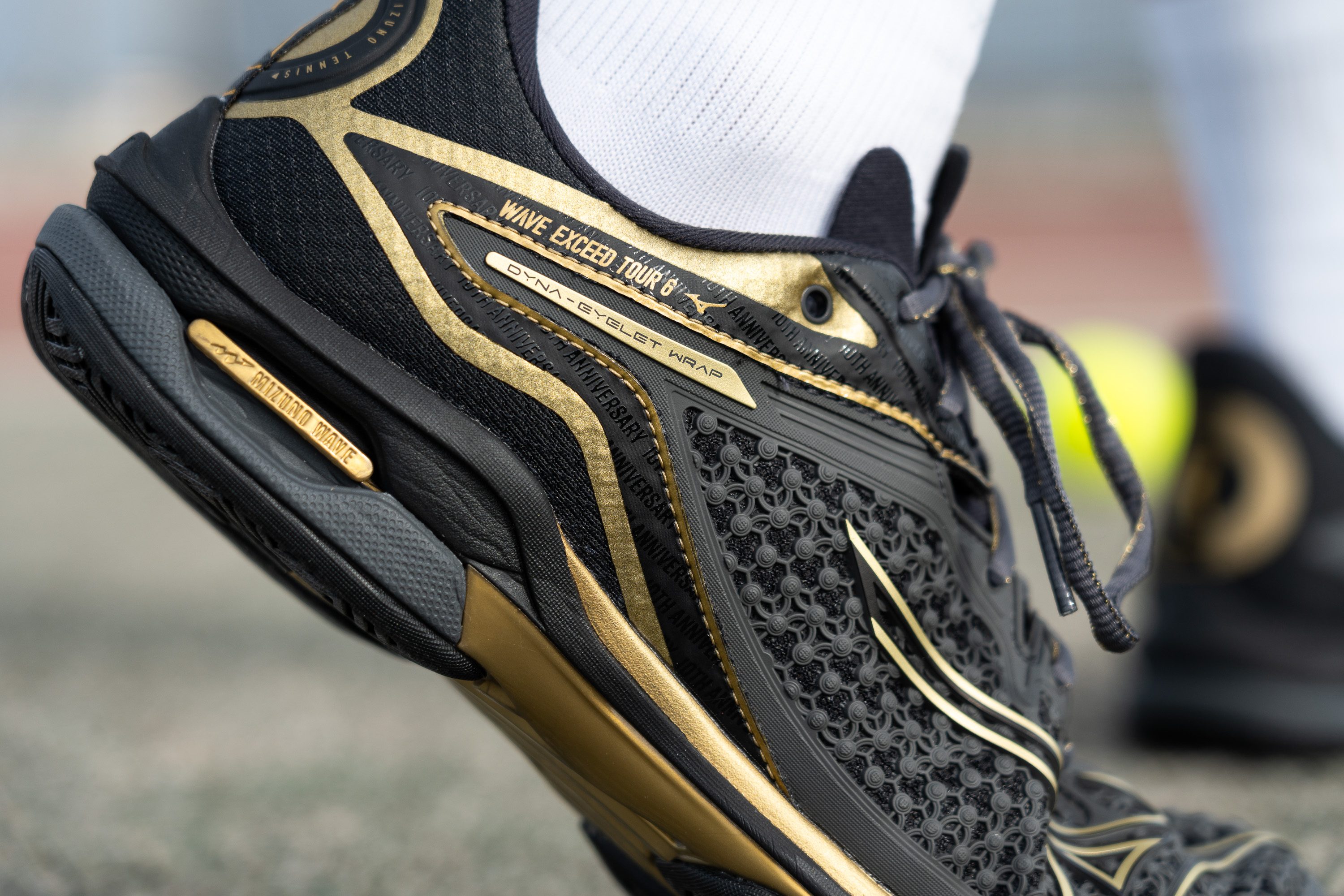
The shoe also comes with an extra eyelet at the top to allow for a runner's knot. Unfortunately, we found it hard to make use of it because the tongue is very short and thins out towards the end.
This causes pressure and lace bites on top of the foot.
Traction / Grip
From our experience, the shoe's DuRubber and razor-blade tread pattern provide lots of grip for stopping on a sixpence, bouncing back from a shot, and feeling stable when cornering.
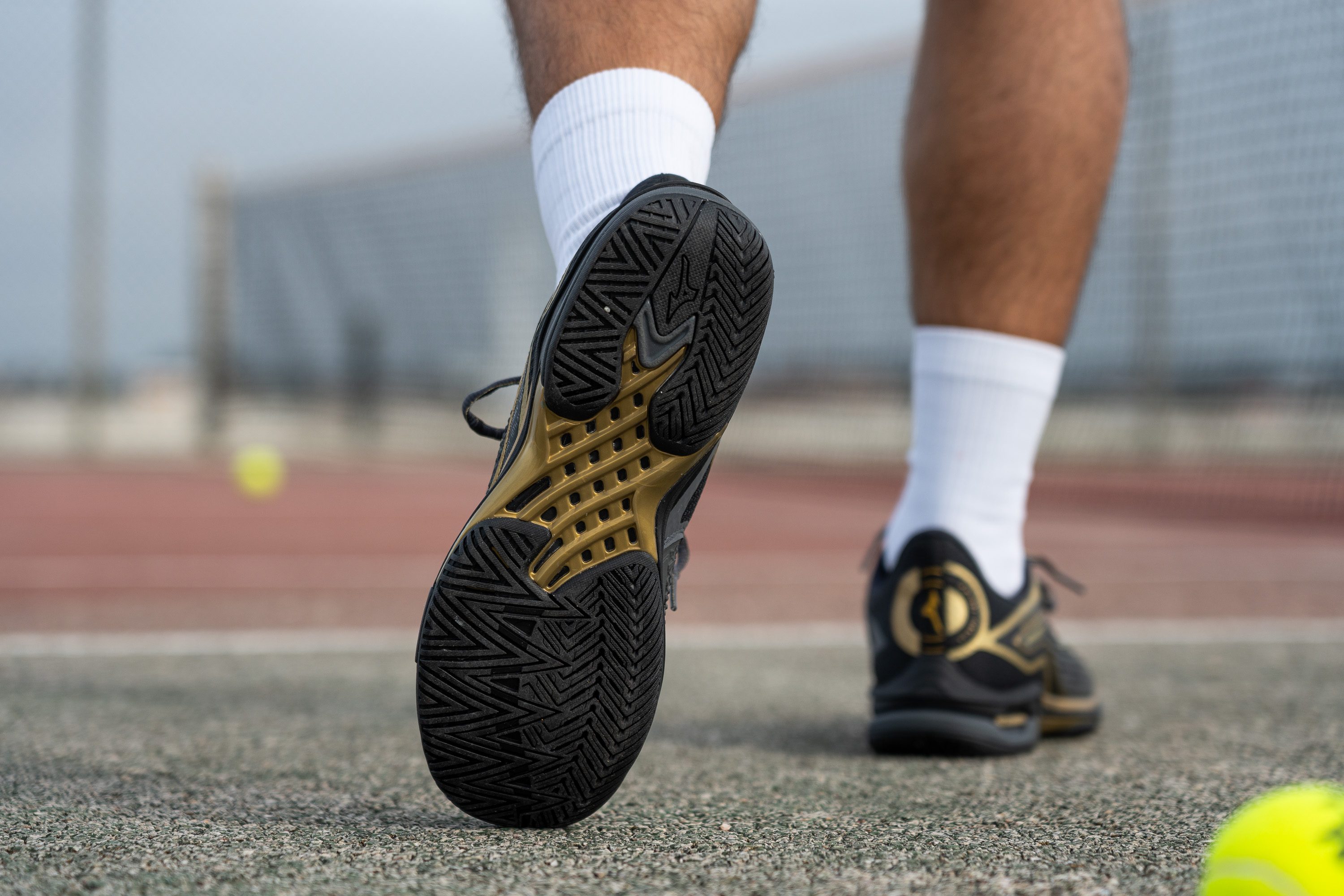
We would even say that the Exceed Tour 6 is on the tackier side of tennis shoes.
Its sliding potential is only revealed after hours of breaking in or when the player applies a lot of force.
Forefoot traction
The shoe's DuRubber outsole with a razor-blade tread pattern provides lots of grip for stopping on a sixpence, bouncing back from a shot, and feeling stable when cornering.
Recording its friction coefficient at 0.78, we found that the Mizuno Wave Exceed Tour 6 is on par with the category average.
P.S. Please note that the shoe's sliding potential is only revealed after hours of breaking in or when the player applies a lot of force.
| Wave Exceed Tour 6 | 0.78 |
| Average | 0.74 |
Outsole design
Zonal rubber coverage helps to make this Mizuno shoe more flexible and manoeuvrable, providing grip only in the areas where it's most needed.

Flexibility / Stiffness
We already mentioned the D-Flex Groove that runs through the shoe's midsole.
On the court, we were amazed at how well it allowed the Exceed Tour 6 to bend along with our feet during turns and pivots. Measuring its flexibility in our lab, we found that this Mizuno shoe in fact only needs 10.9N of force to be bent to a 30-degree angle!
We don't see that level of flexibility very often. Most tennis shoes need up to 35% more force to do the same.
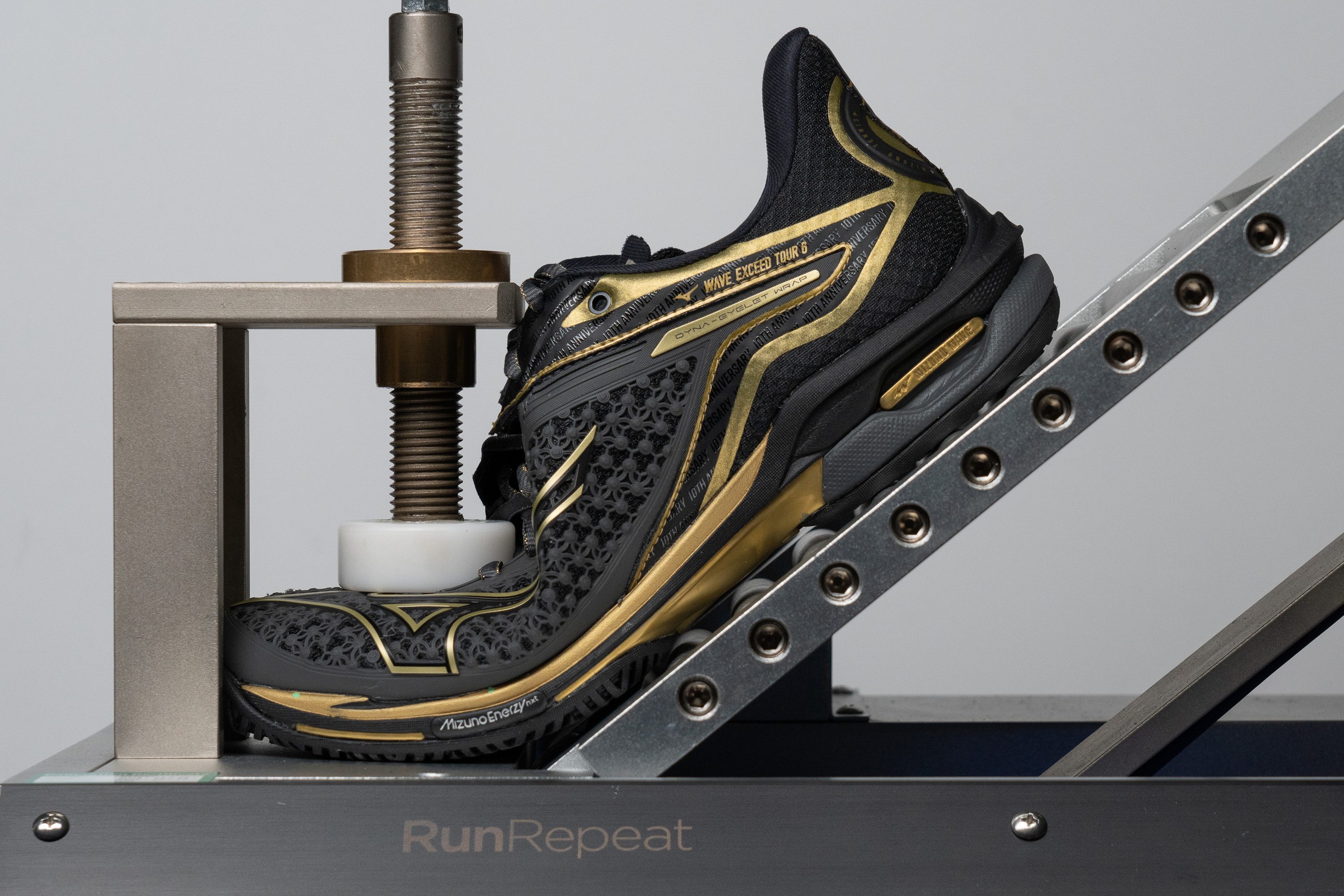
| Wave Exceed Tour 6 | 10.9N |
| Average | 16.7N |
Weight
The biggest selling point of the Mizuno Wave Exceed Tour 6 is its lighter-than-average weight.
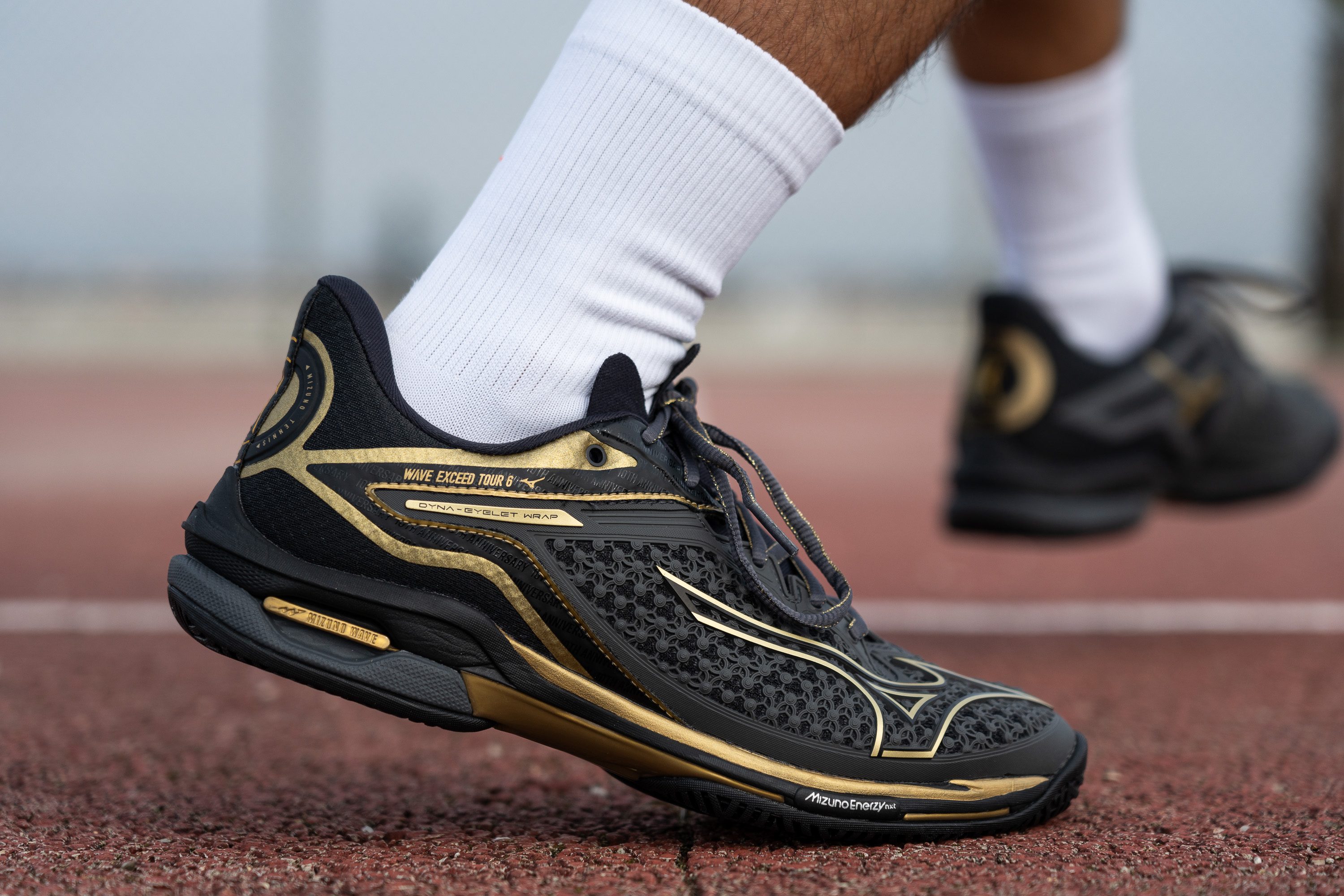
The shoe was barely noticeable on our feet, allowing us to move around freely and easily.
Weighing it in a men's US size 9, we got 11.7 oz (332.0g) which is true to the official specs and is about an ounce lighter than the average tennis shoe.
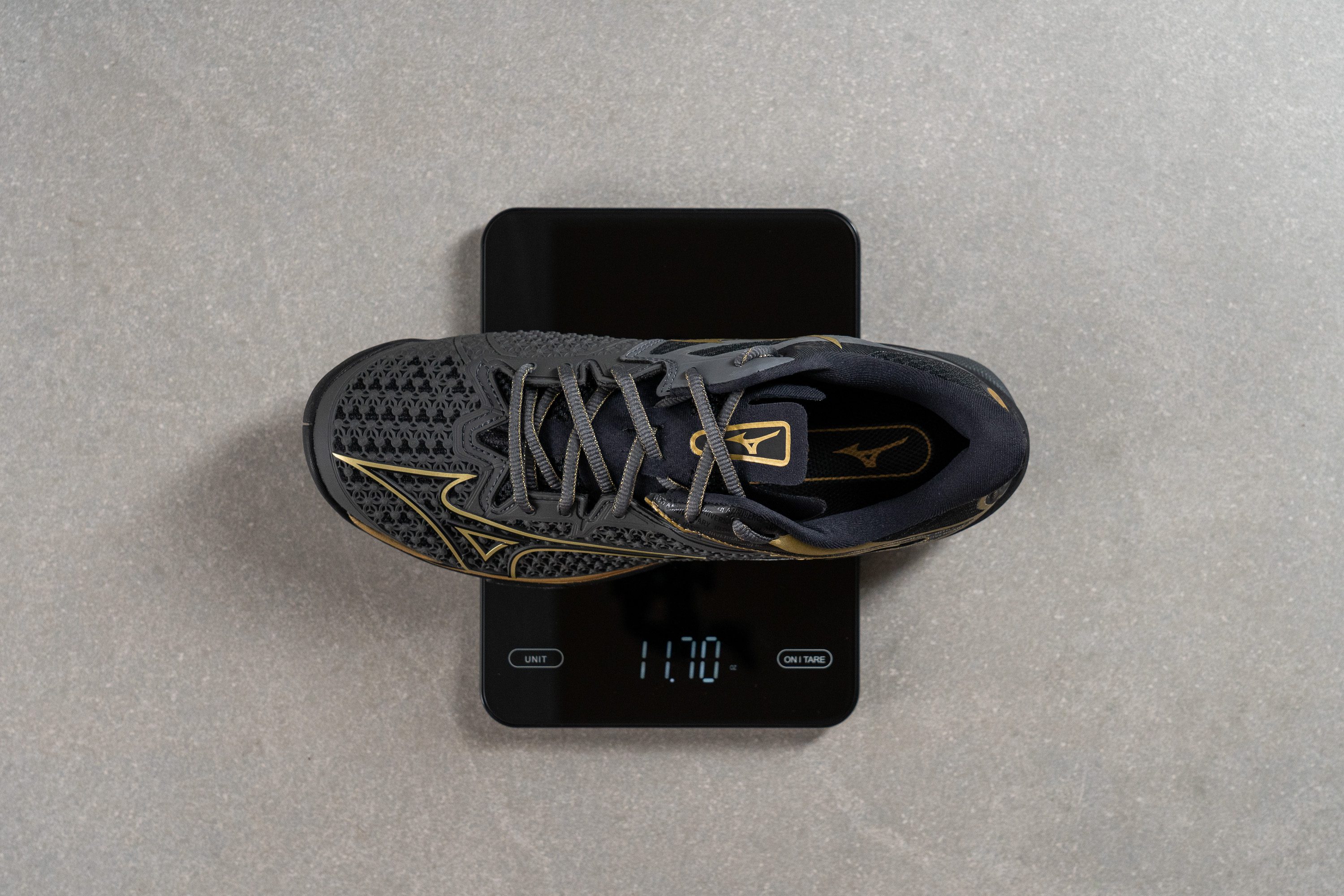
| Wave Exceed Tour 6 | 11.7 oz (332g) |
| Average | 12.8 oz (363g) |
Breathability
Looking at the shoe's solid polyurethane (PU) upper, we didn't expect it to be highly breathable.
And just like that, our smoke-pumping test proved the shoe's lack of ventilation showing how little smoke passed through its upper.
Even when we hovered the shoe's half-cut upper over a bright light, it didn't reveal any hidden ventilation holes.
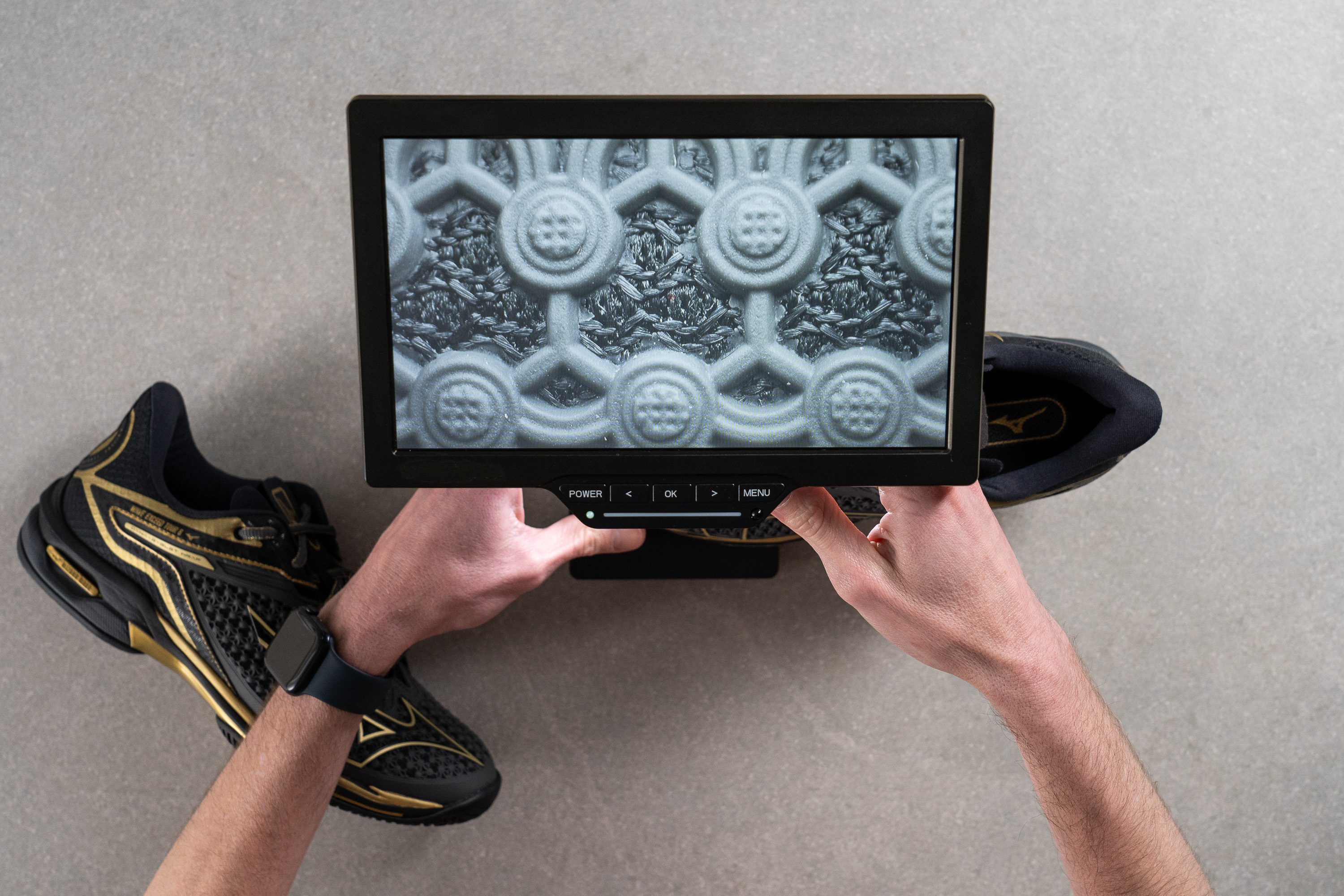
The shoe's PU coverage may have numerous gaps in it, but we found that there is a thickly woven mesh beneath it that doesn't allow much airflow.
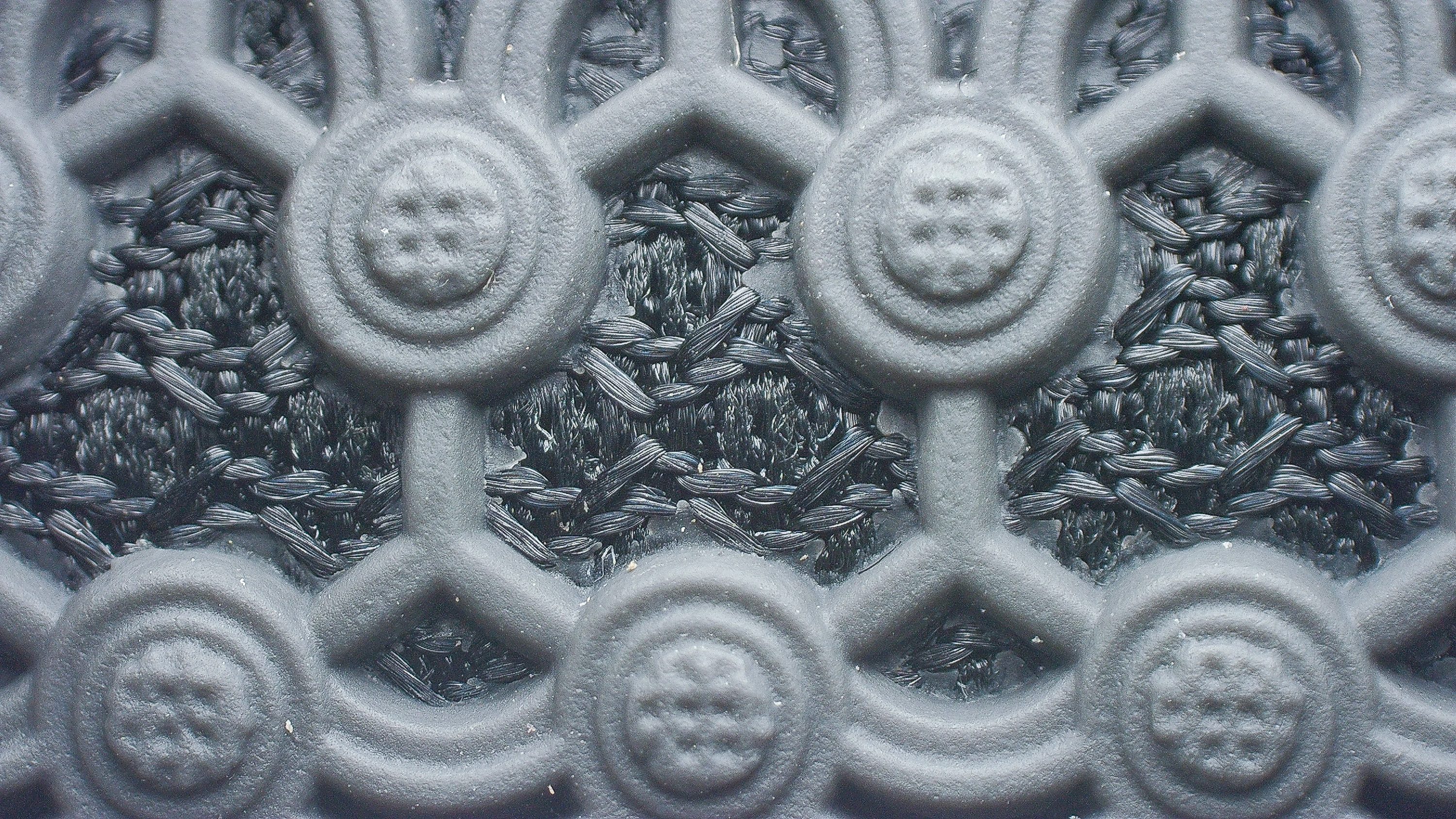
All things considered, we couldn't give the Exceed Tour 6 a breathability score higher than 2 out of 5.
| Wave Exceed Tour 6 | 2 |
| Average | 3.1 |
Stability
Lateral stability test
The Mizuno Wave Exceed Tour 6 is a stellar example of a lightweight shoe that doesn't compromise stability. We felt very well supported on forceful lateral cuts and crossover steps.
The shoe features an extra stiff Wave plate to provide stability. But at the same time, it also has a D-Flex Groove running through the midsole to let the shoe bend freely with the foot. That's a rare combination in tennis shoes these days.
Torsional rigidity
Ankle rolls are out of the question in the Wave Exceed Tour 6. The Wave shank makes this tennis shoe exceptionally rigid in the midfoot which makes it hard to twist and prevents the foot from rolling over the edge.
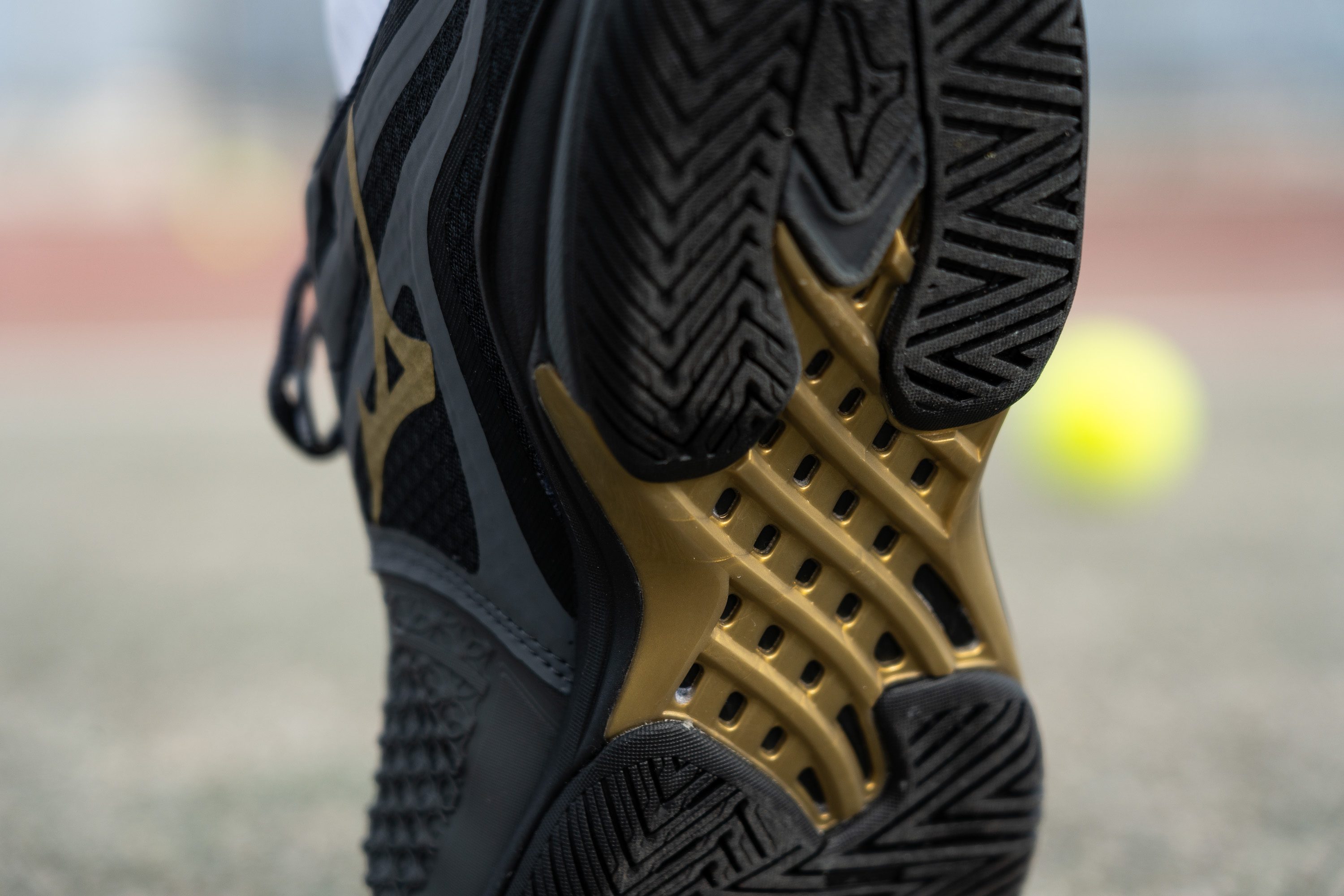
Manually assessing its torsional stiffness on a 1-5 scale, we rated this Mizuno shoe with a solid 4 out of 5!
| Wave Exceed Tour 6 | 4 |
| Average | 4.5 |
Heel counter stiffness
A supportive heel counter is just as important if you want to feel completely stable in a tennis shoe.
It won't let the heel and ankle shift inside the shoe as you make forceful multi-directional movements across the court.
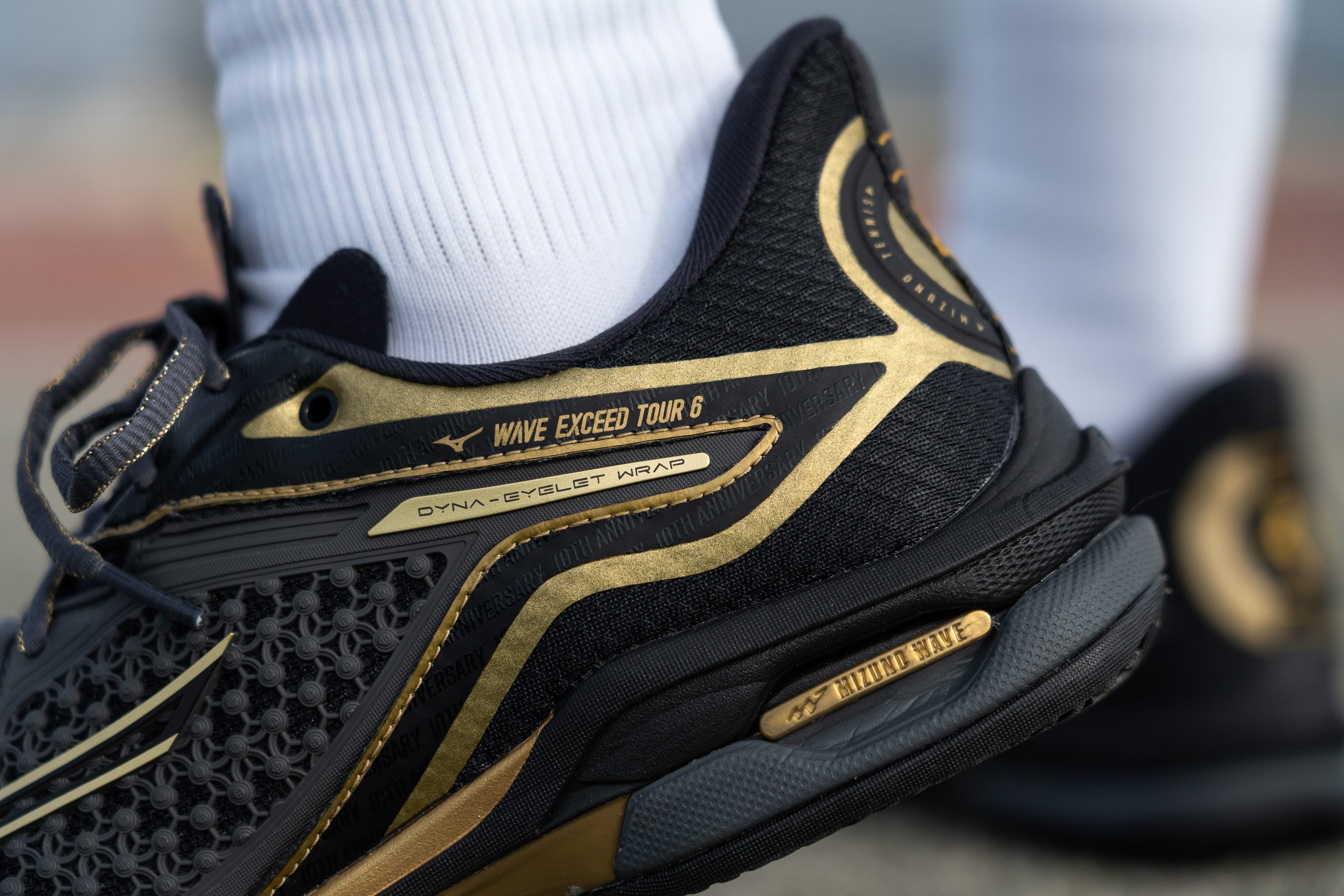
The Mizuno Wave Exceed Tour 6 nails our push-and-squeeze test with its extra-stiff and structured heel counter. This is what a perfect 5 looks like on a 1-5 stiffness scale!
| Wave Exceed Tour 6 | 5 |
| Average | 4.1 |
Midsole width - forefoot
We were surprised by the level of stability offered in this Mizuno tennis shoe because it doesn't have a very wide platform.
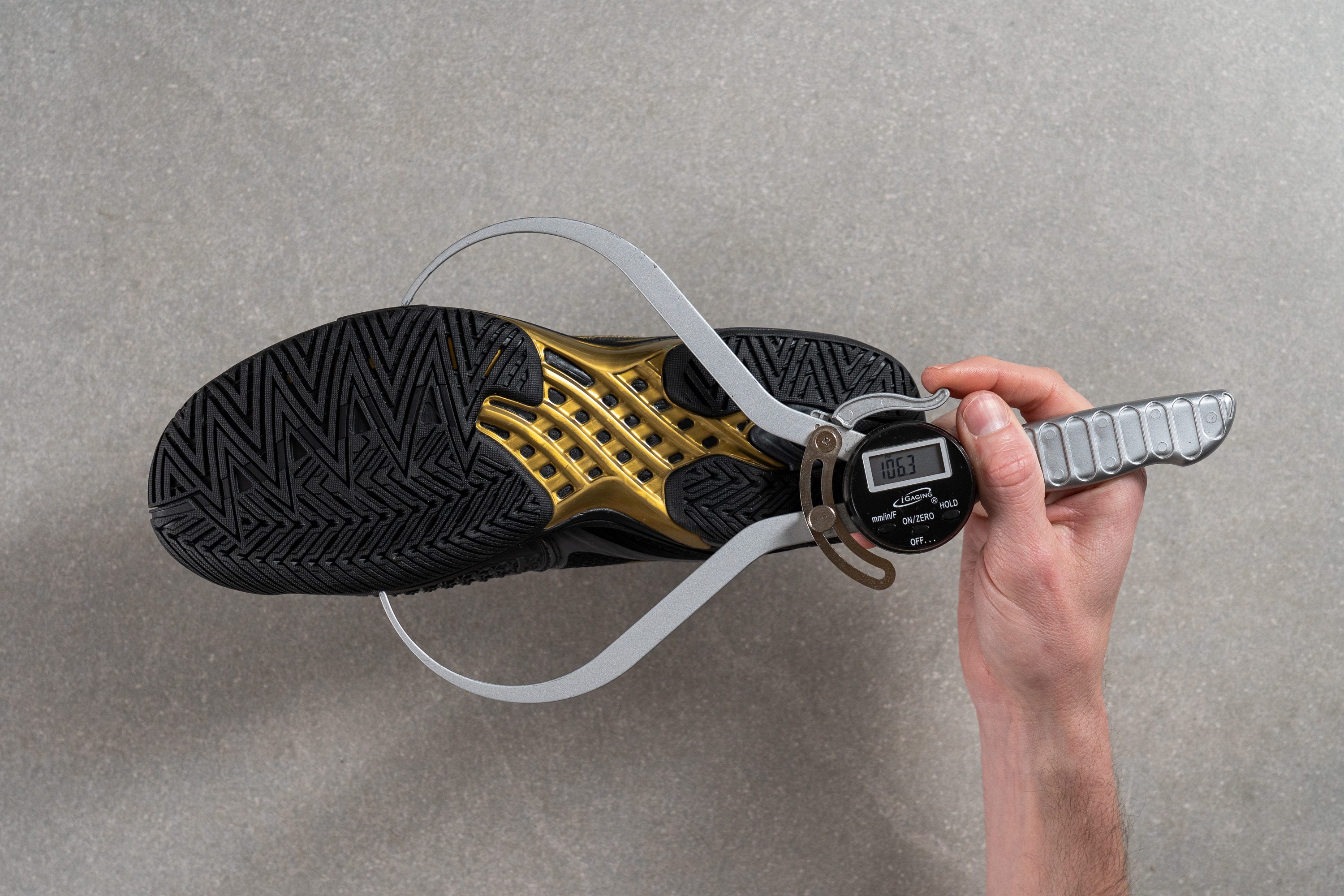
Measuring the widest part of its midsole in the forefoot, our calliper showed a modest 106.3 mm. It is narrower than average but not too narrow to compromise stability.
| Wave Exceed Tour 6 | 106.3 mm |
| Average | 111.9 mm |
Midsole width - heel
Just like the forefoot, the shoe's heel is not very wide either. It showed only 83.7 mm in the widest area. This is one of the narrowest tennis shoe heel measurements in our lab.
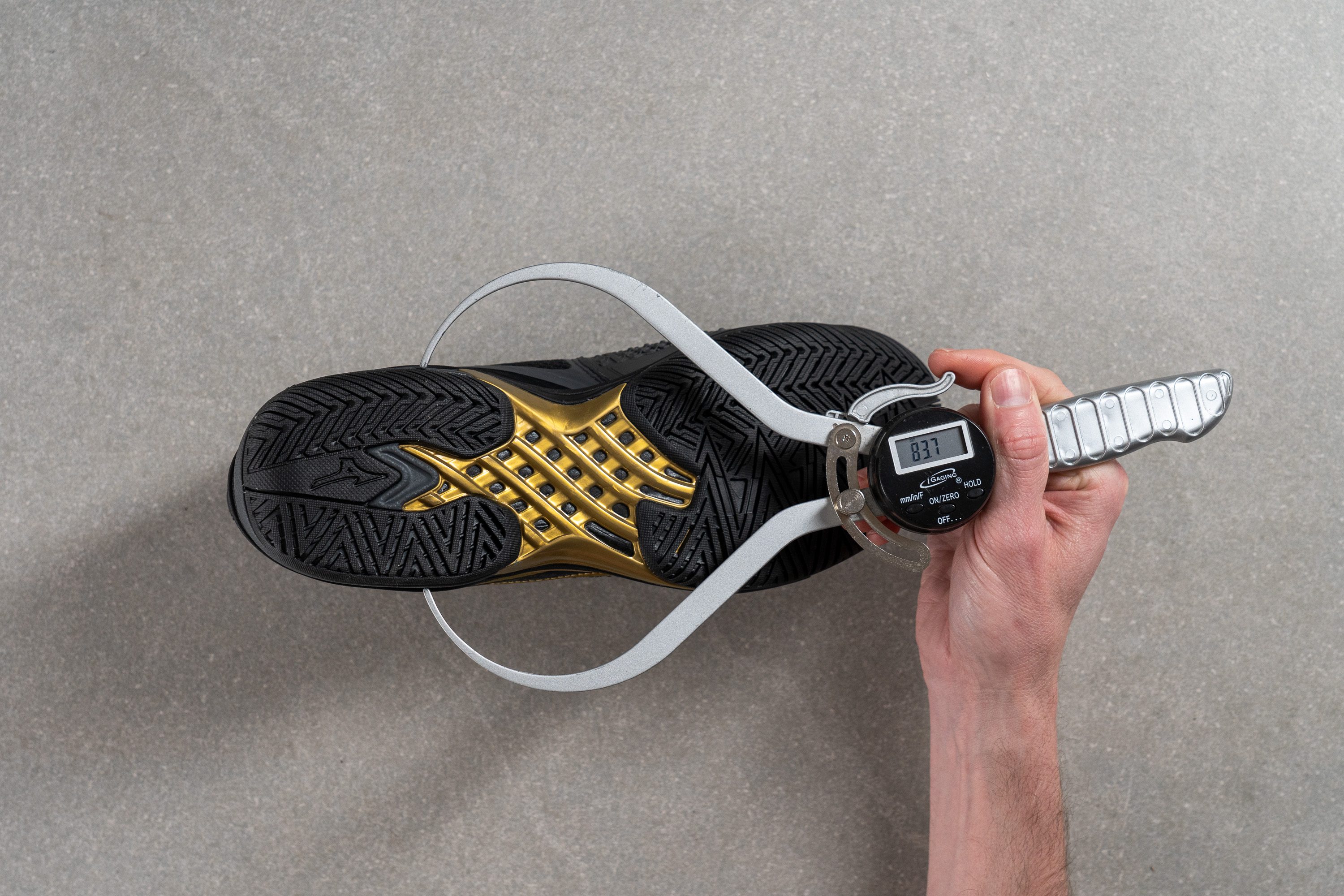
| Wave Exceed Tour 6 | 83.7 mm |
| Average | 89.5 mm |
Durability
Toebox durability
We were amazed at this Mizuno shoe's ability to resist abrasion! With a 3D-Solid technology covering its entire upper, this shoe is ready for some aggressive court action.
To test the limits of the Exceed Tour 6, we applied a Dremel with a sandpaper tip to the centre of its toebox. After drilling the material for 12 seconds at 5K RPM speed and 3.2N pressure, we saw just a minor scratch on the PU coverage!
The tool didn't even burn through the topmost layer!
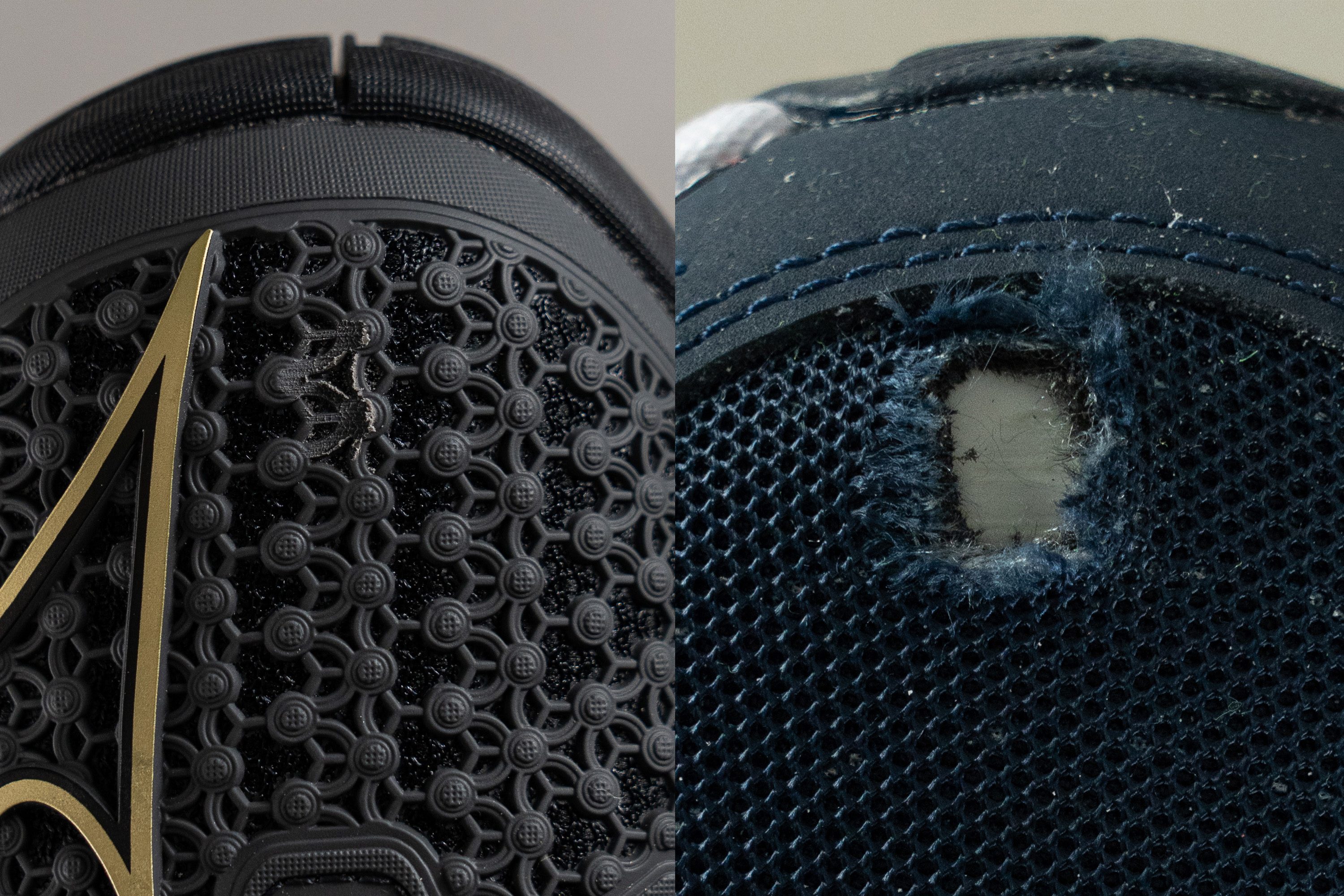
The comparison photo above clearly shows why the Mizuno shoe scored 4 out of 5 for toebox durability.
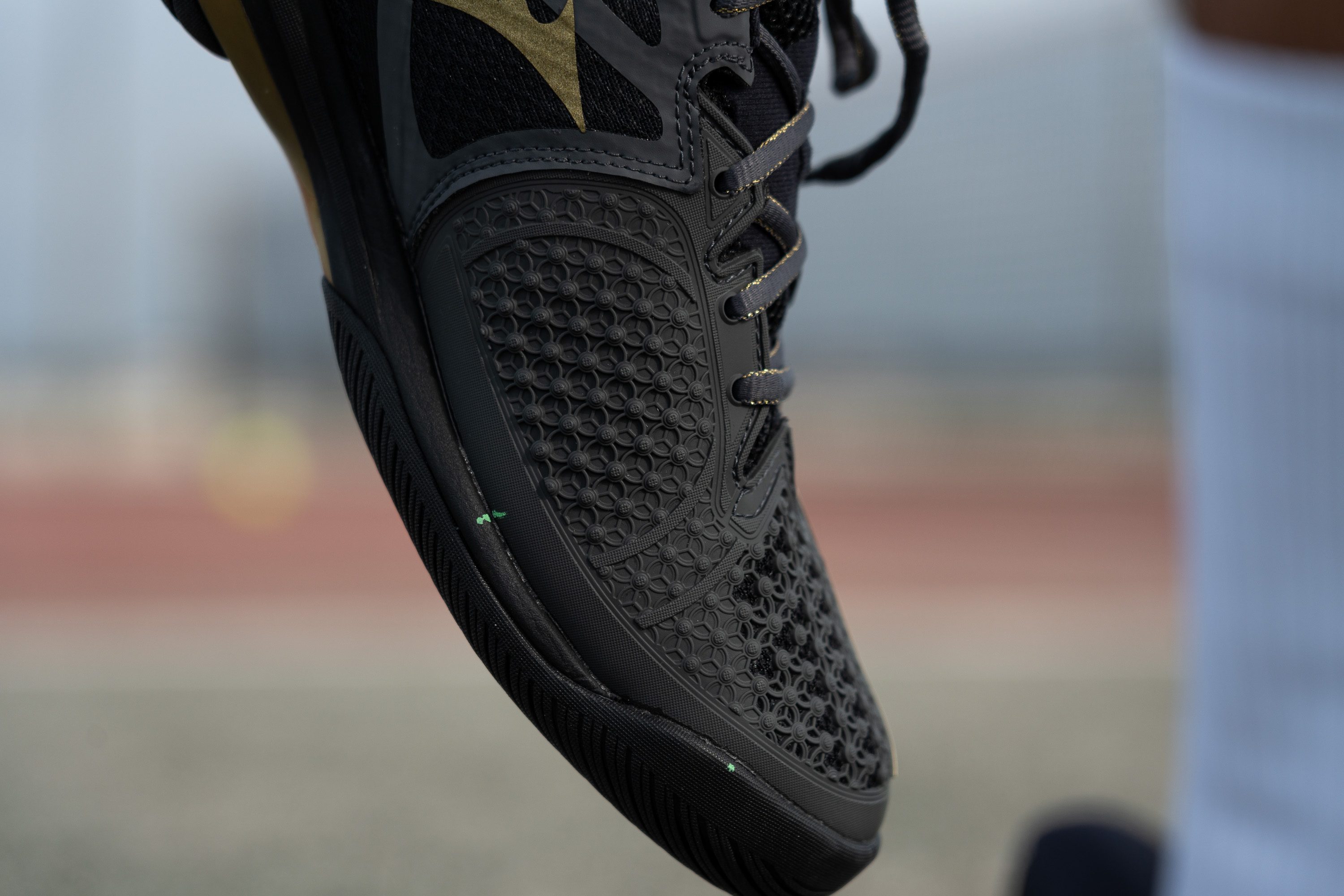
The Exceed Tour 6 doesn't have a very pronounced toe drag guard like other shoes (the ASICS Solution Speed FF 3 for example) but the 3D-Solid technology and raised rubber outsole offer a pretty good level of protection.
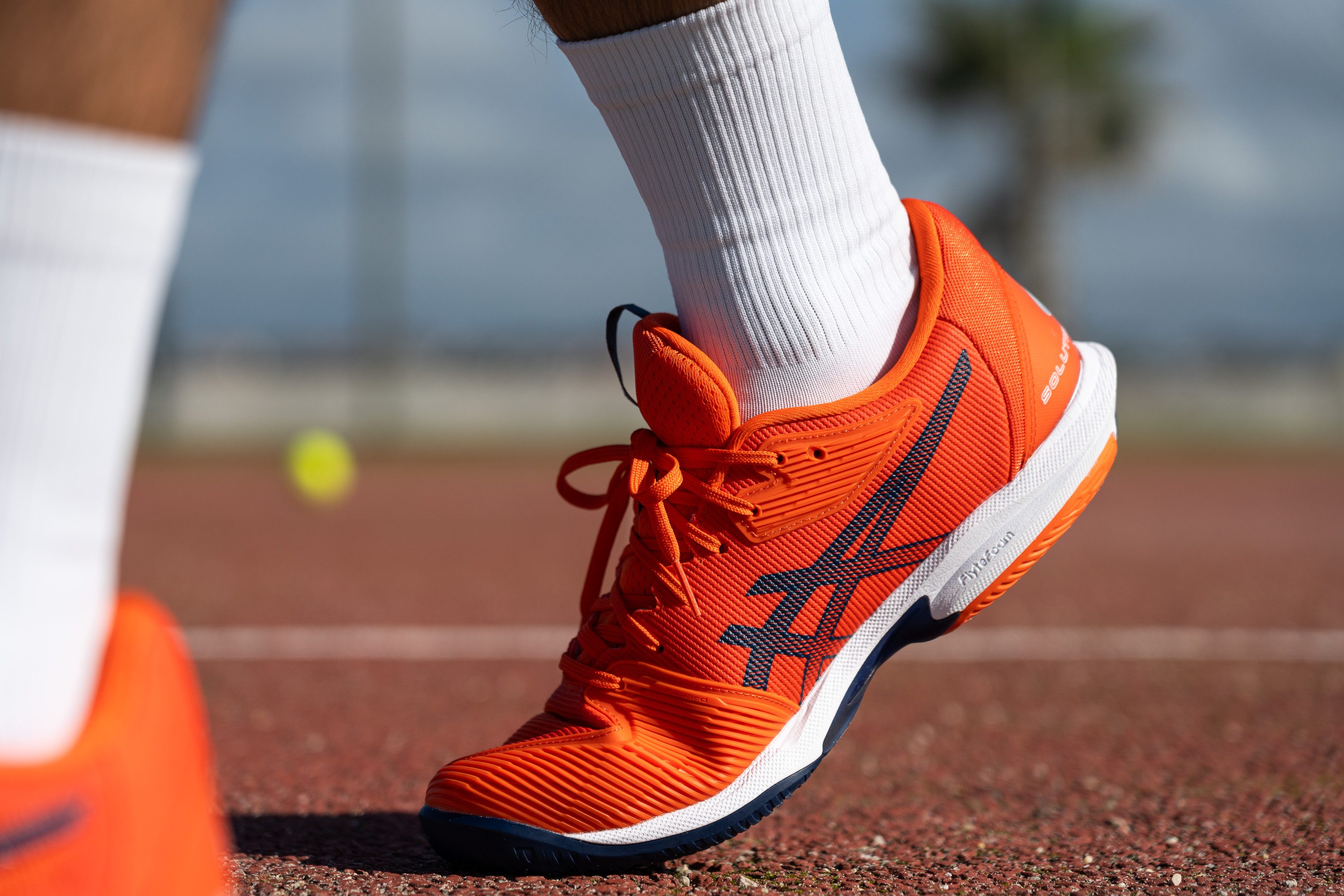
| Wave Exceed Tour 6 | 4 |
| Average | 3.7 |
Heel padding durability
Another shoe area that's prone to premature wear due to constant friction is the inner lining of the heel counter.
We held the Dremel against the Exceed Tour 6's heel padding for 4 seconds and the damage was barely even visible! We applaud the brand's choice of fabric for the inner lining.
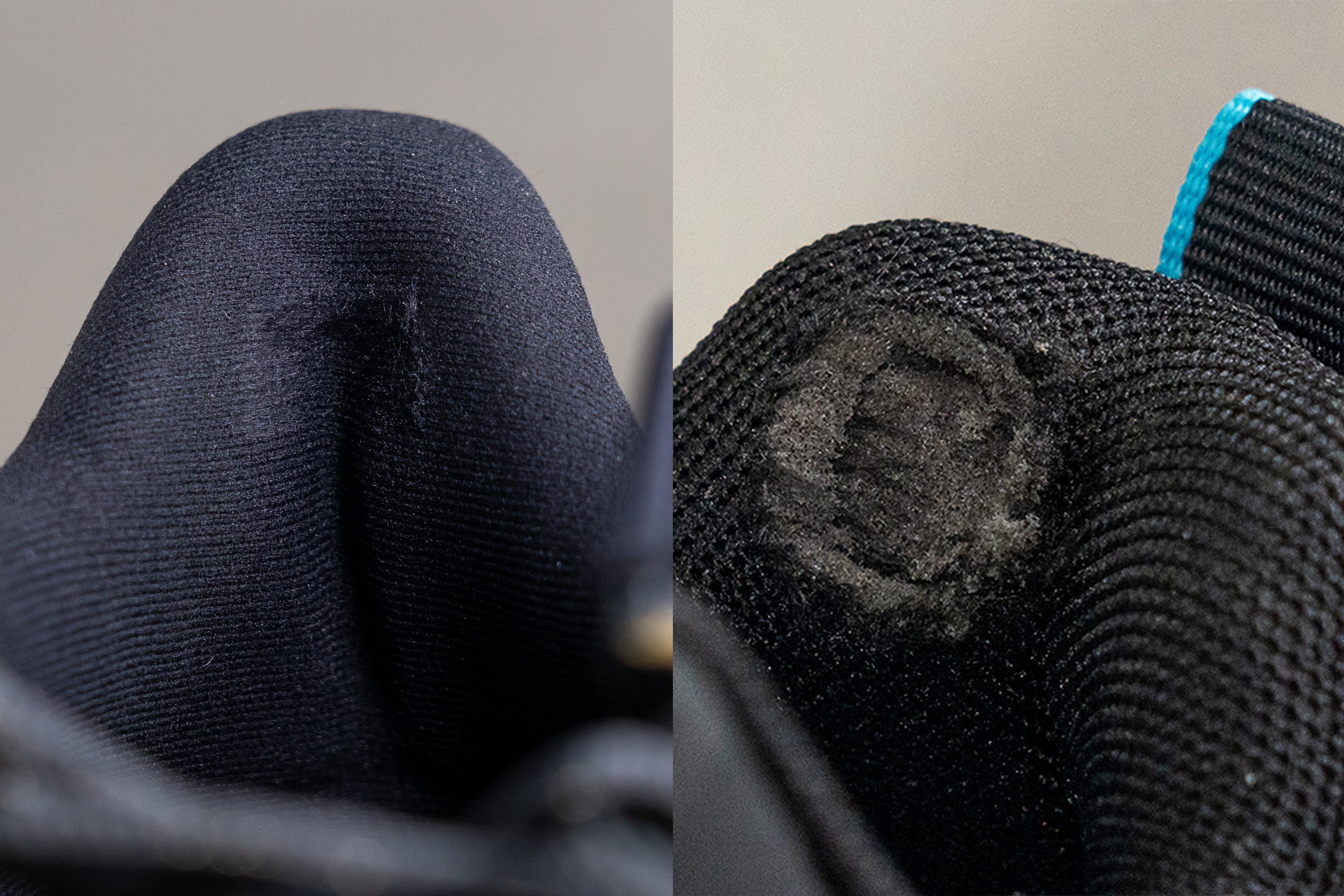
On a 1-5 scale, we rated the shoe's heel padding durability with the highest possible score of 5. Great job, Mizuno!
| Wave Exceed Tour 6 | 5 |
| Average | 3.3 |
Outsole hardness
The Exceed Tour 6 uses a proprietary DuRubber compound for the shoe's outsole.
Measuring its hardness with a durometer, we got a reading of 87.6 HC which is firmer than 72% of tennis shoe outsoles.
This is usually a positive sign of durability.
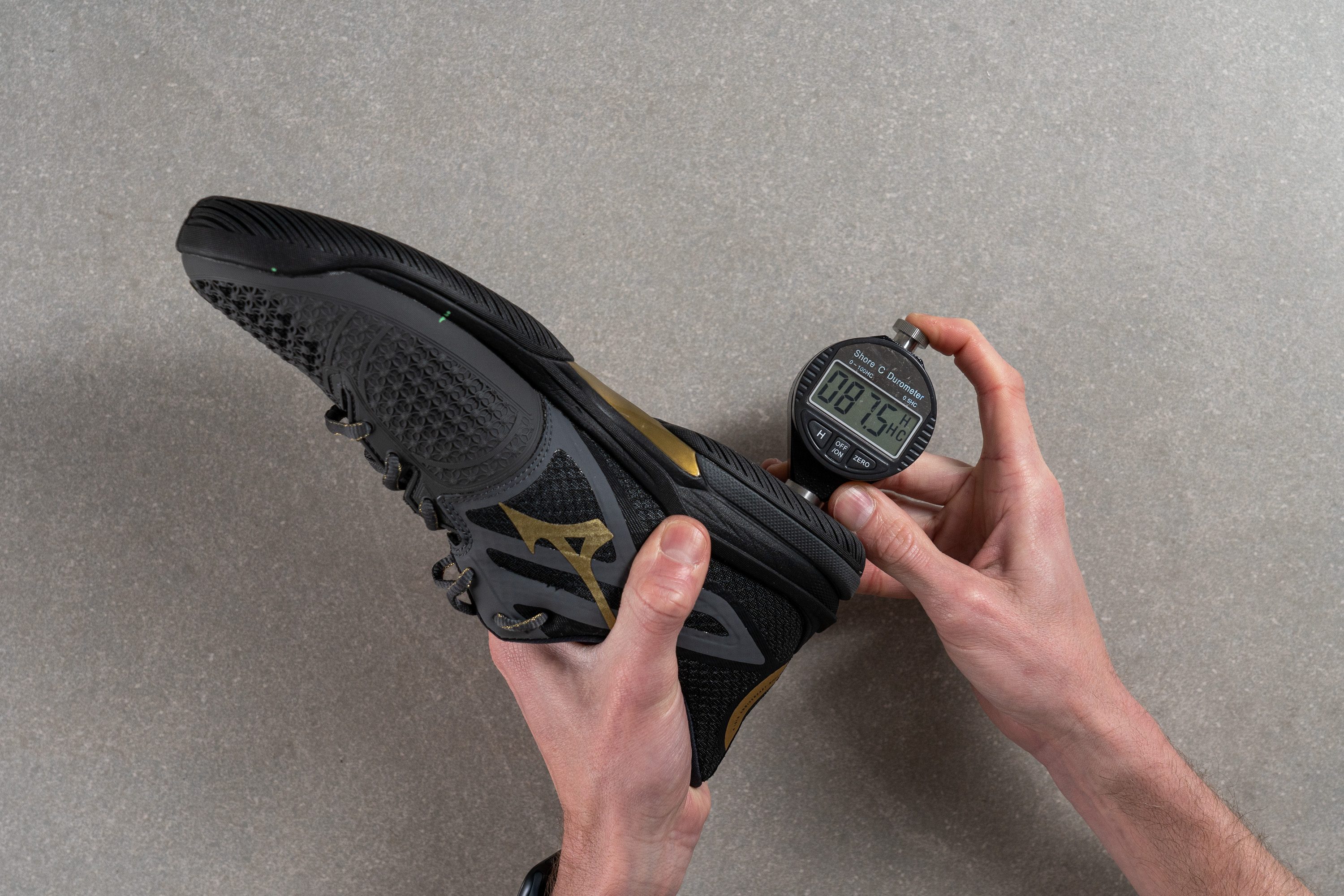
| Wave Exceed Tour 6 | 87.6 HC |
| Average | 86.0 HC |
Outsole durability
To mimic the abrasion caused by slashes and slides on the court, we set the Dremel to 10K RPM speed and held it against the shoe's outsole for 22 seconds.
The rubber stood up to the challenge quite well but not better than the average tennis shoe. The tool left a 1.1 mm dent in the outsole.
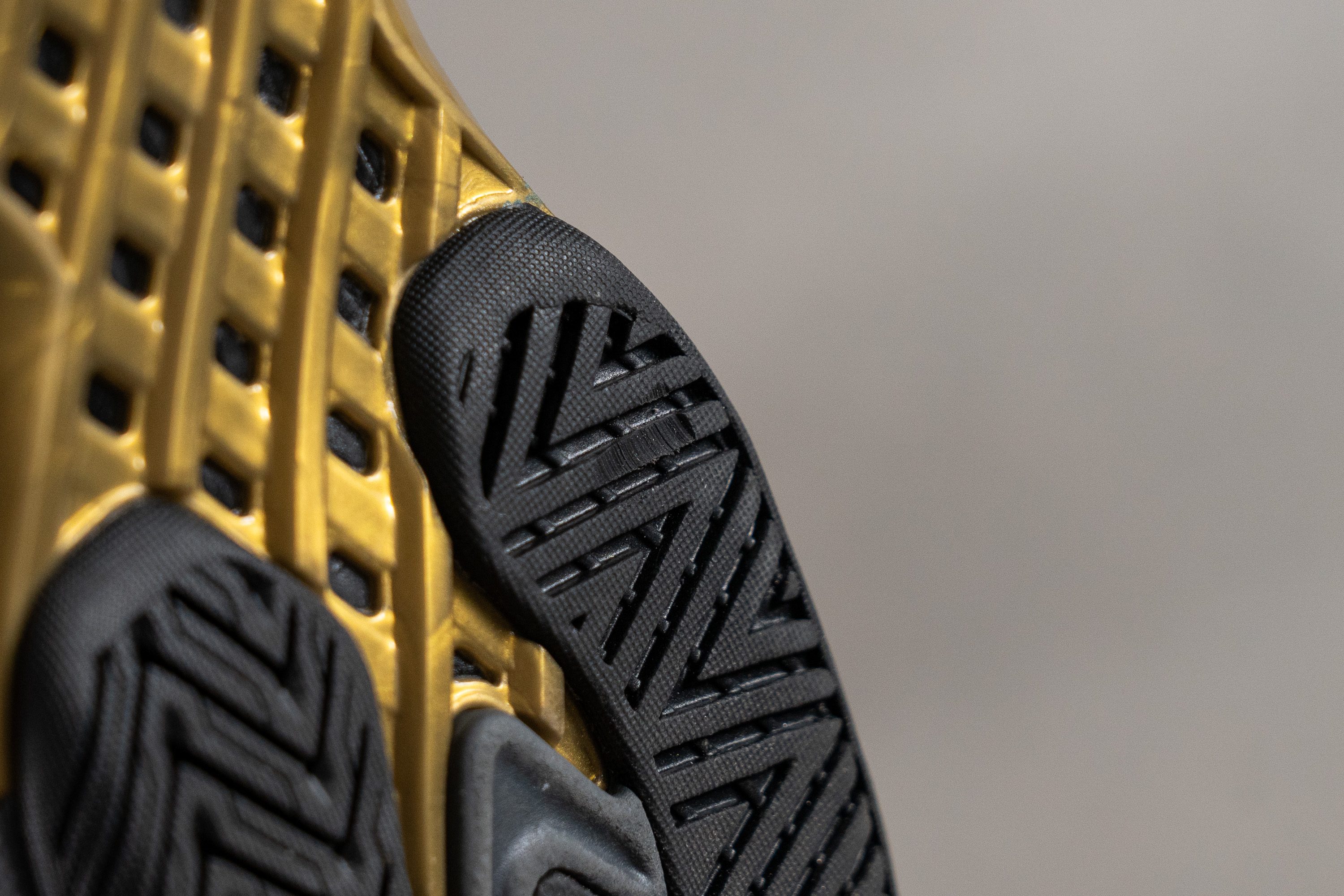
| Wave Exceed Tour 6 | 1.1 mm |
| Average | 0.7 mm |
Outsole thickness
Our only point of concern is how thin the shoe's outsole is compared to the average. With a calliper measurement of 3.1 mm, we found it to be a whole millimetre thinner than average.
But if you want a lightweight shoe with a much more promising outsole potential, we recommend looking into the ASICS Solution Speed FF 3.
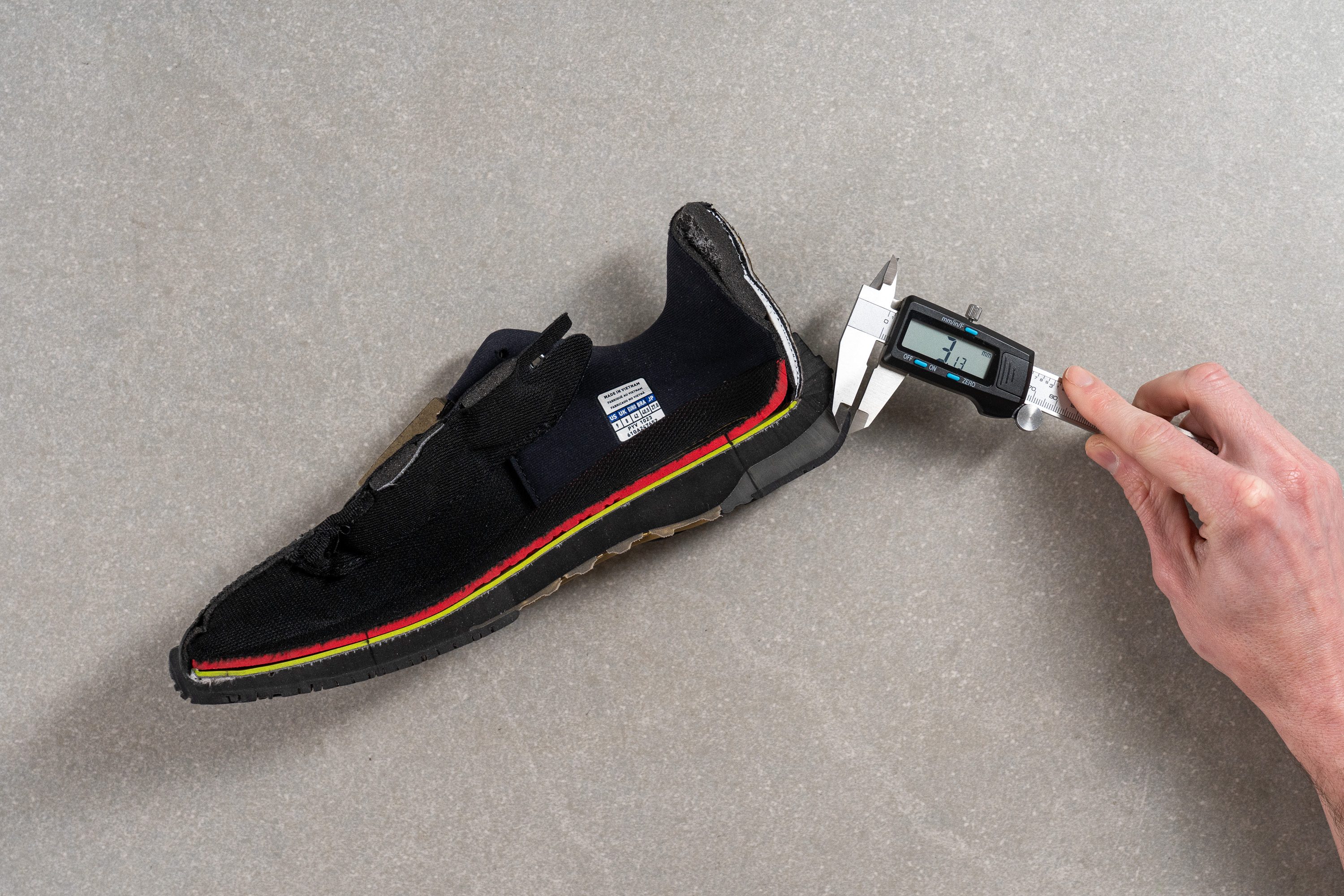
| Wave Exceed Tour 6 | 3.1 mm |
| Average | 4.2 mm |
Misc
Insole thickness
Mizuno kept the insole on the thin side for the Exceed Tour 6. We assume that's because they didn't want to take away from the shoe's grounded underfoot experience.
It does, however, offer enough padding to buffer the foot from the firm midsole.
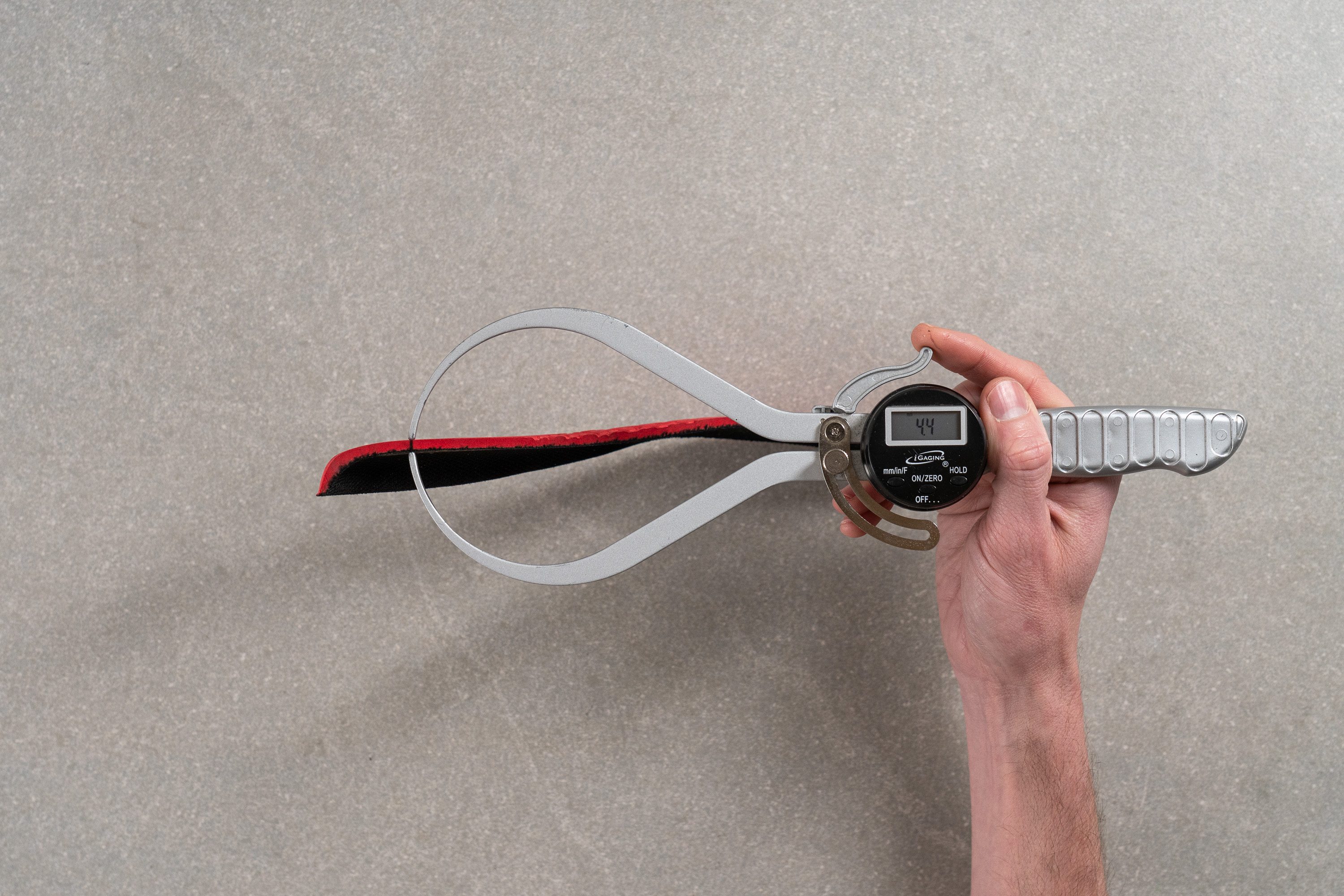
| Wave Exceed Tour 6 | 4.4 mm |
| Average | 5.1 mm |
Removable insole
The shoe's stock insole is easily removable. You can replace it with a custom orthotic if necessary.
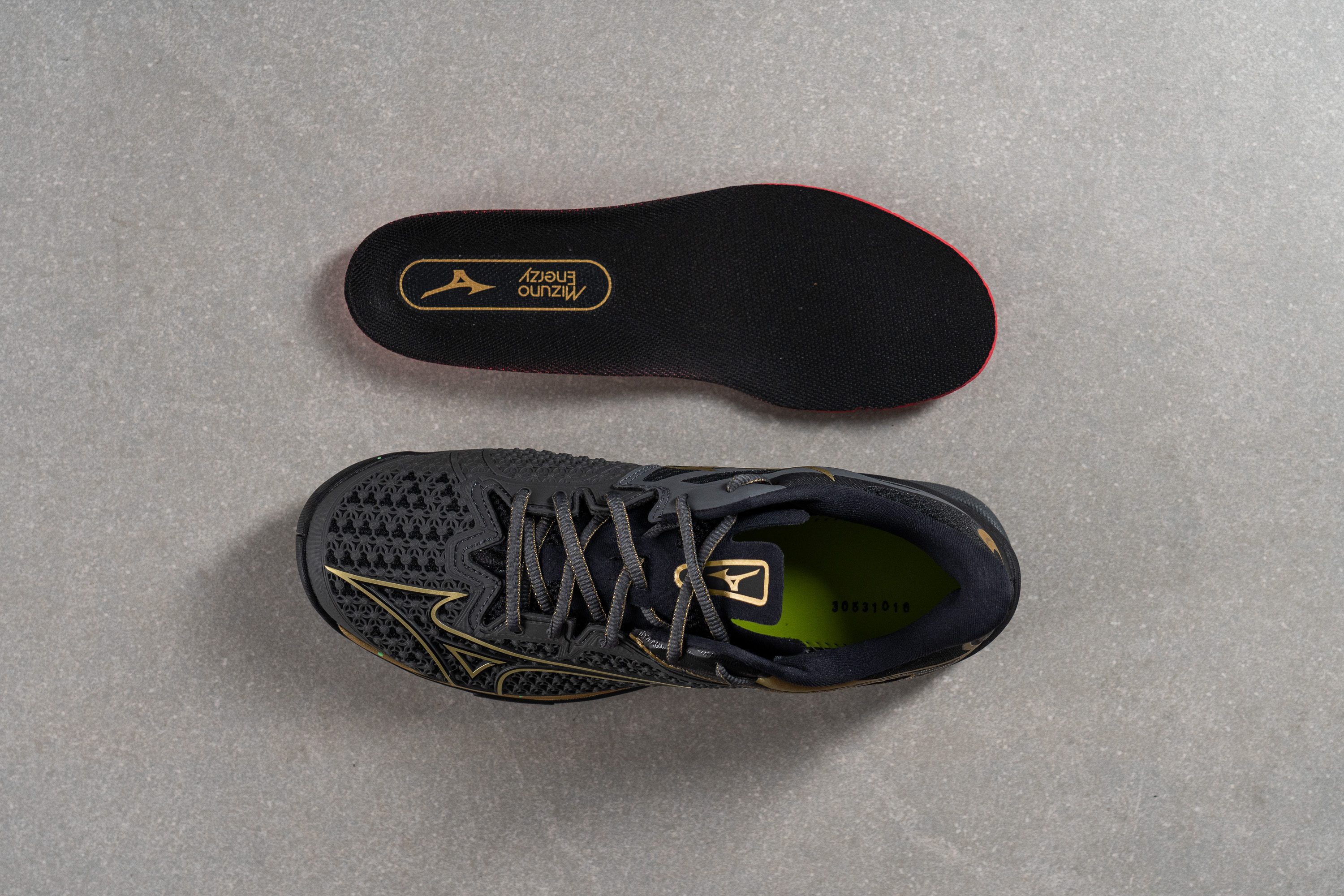
| Wave Exceed Tour 6 | Yes |
Tongue padding
The good news is that the tongue has more padding in the middle part, reaching 7.7 mm of thickness.
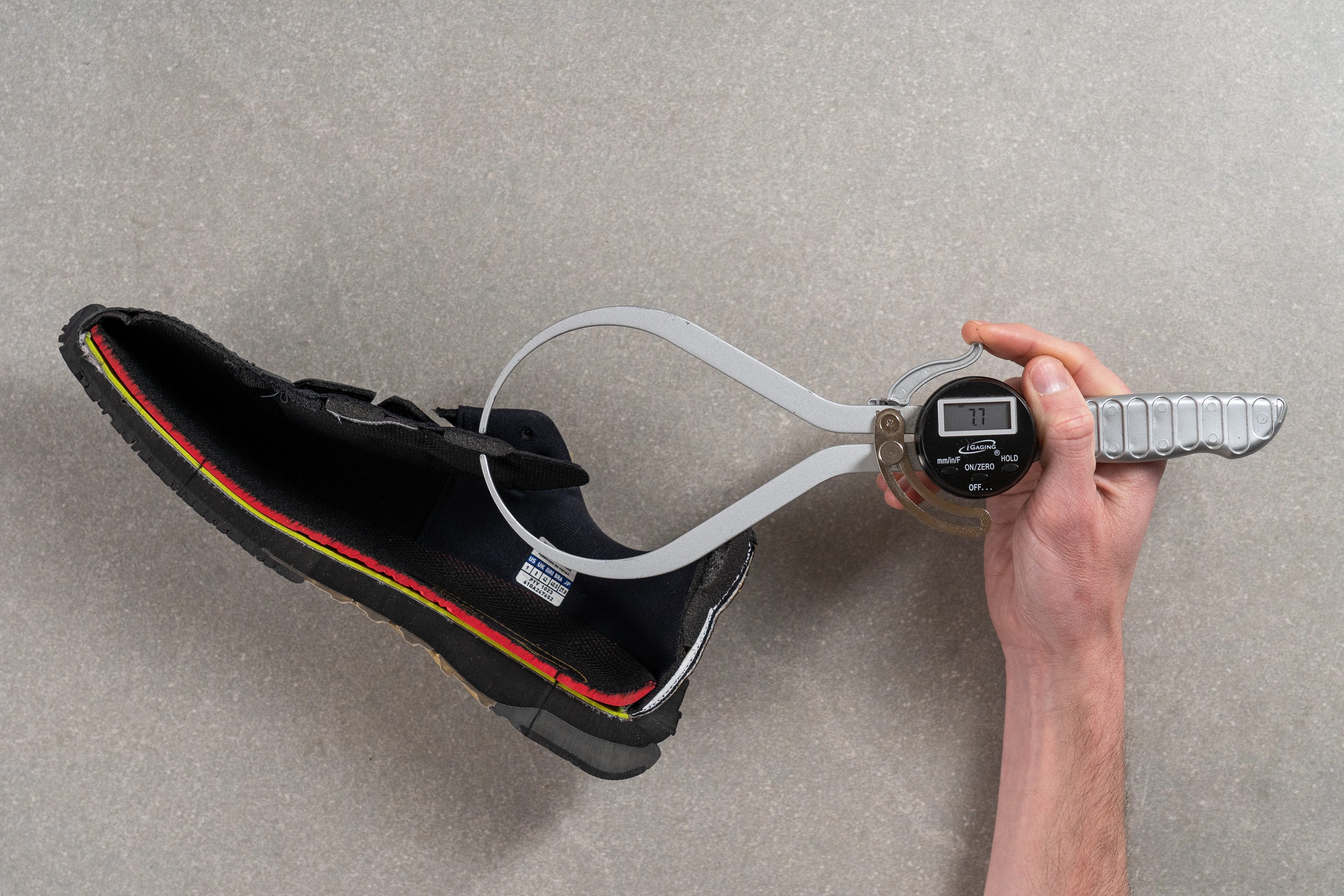
| Wave Exceed Tour 6 | 7.7 mm |
| Average | 8.2 mm |
Tongue: gusset type
At first, we were bummed by the lack of gussets on the shoe's tongue.
But as we playtested the Tour 6, we realised that it's not really necessary given the shoe's lacing system.
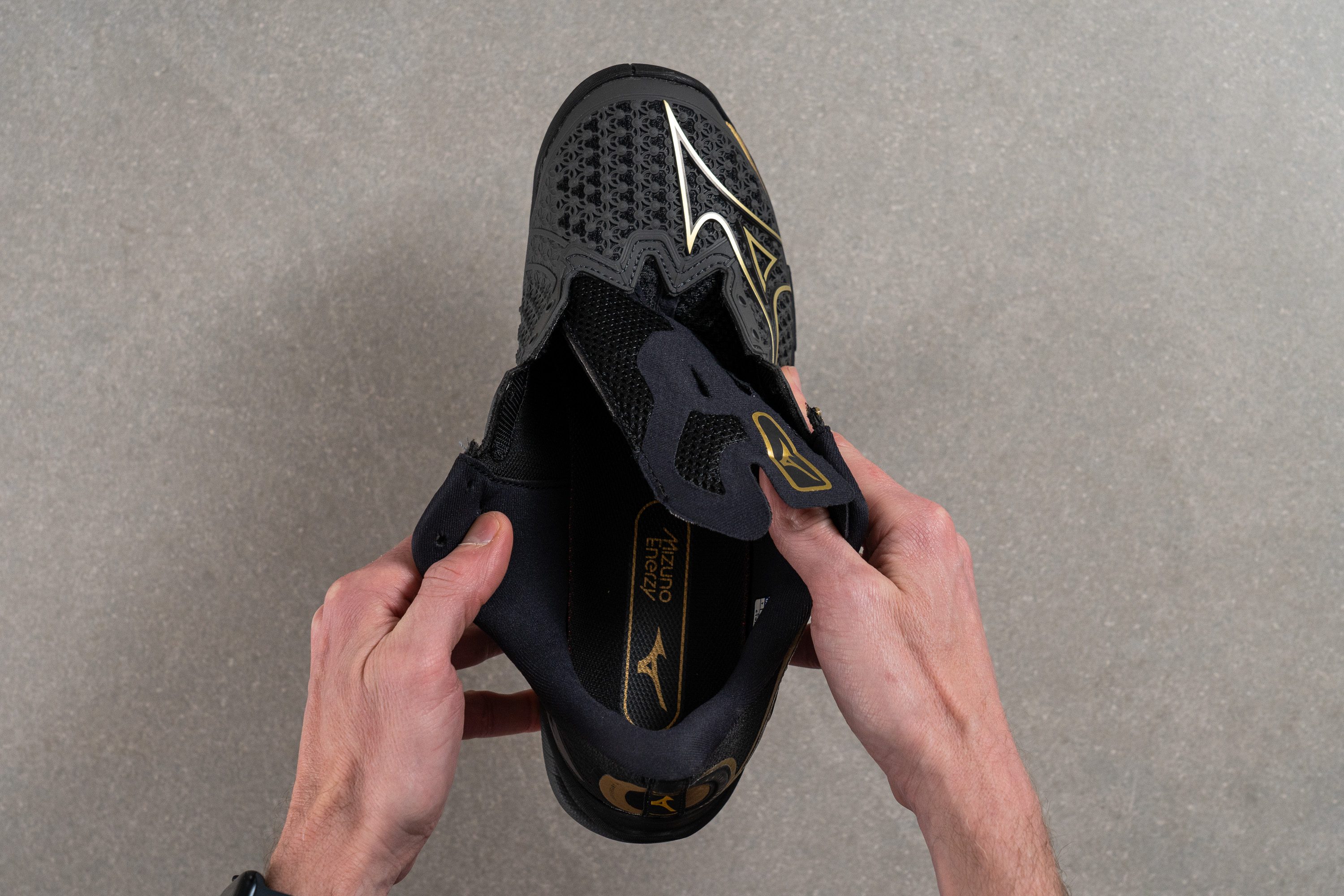
| Wave Exceed Tour 6 | None |
Heel tab
The Wave Exceed Tour 6 features an extended heel collar instead of pull tabs or finger loops. We found it easy to grab and hold on to when putting the shoe on.
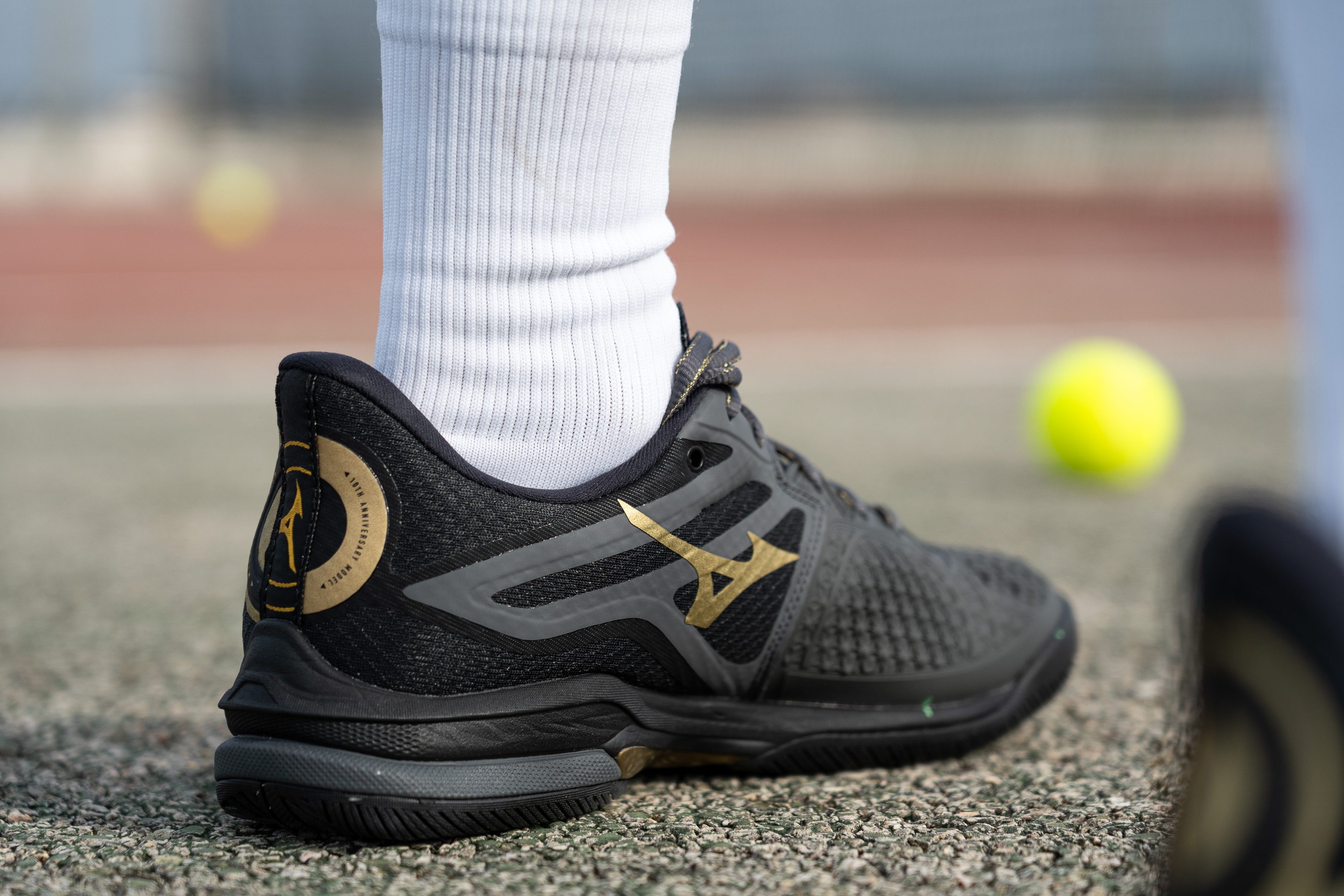
| Wave Exceed Tour 6 | Extended heel collar |

